PLC Guide to Courses
YEARS 7 - 10

Vision Mission
Our Our




The Guide to Courses provides a summarised outline of what is offered at Presbyterian Ladies’ College in Years 7 to 10. Information covers:
• the ways in which your daughter can make the most of her education at the College;
• the student wellbeing and support systems;
• the academic curriculum;
• personal and social development programs;
• the broad range of co-curricular activities in which girls can be involved.
The learning environment at Presbyterian Ladies’ College is exciting and challenging, concerned with developing the individual and assisting them to achieve their best. It is underpinned by Christian teachings and values which are reflected in a spirit of helpfulness, care and service to others.
Many people share the responsibility for the overall progress and wellbeing of each student. Close co-operation between families and the College promotes the personal and educational development of students. Parents are therefore encouraged to contact the appropriate staff, as necessary.
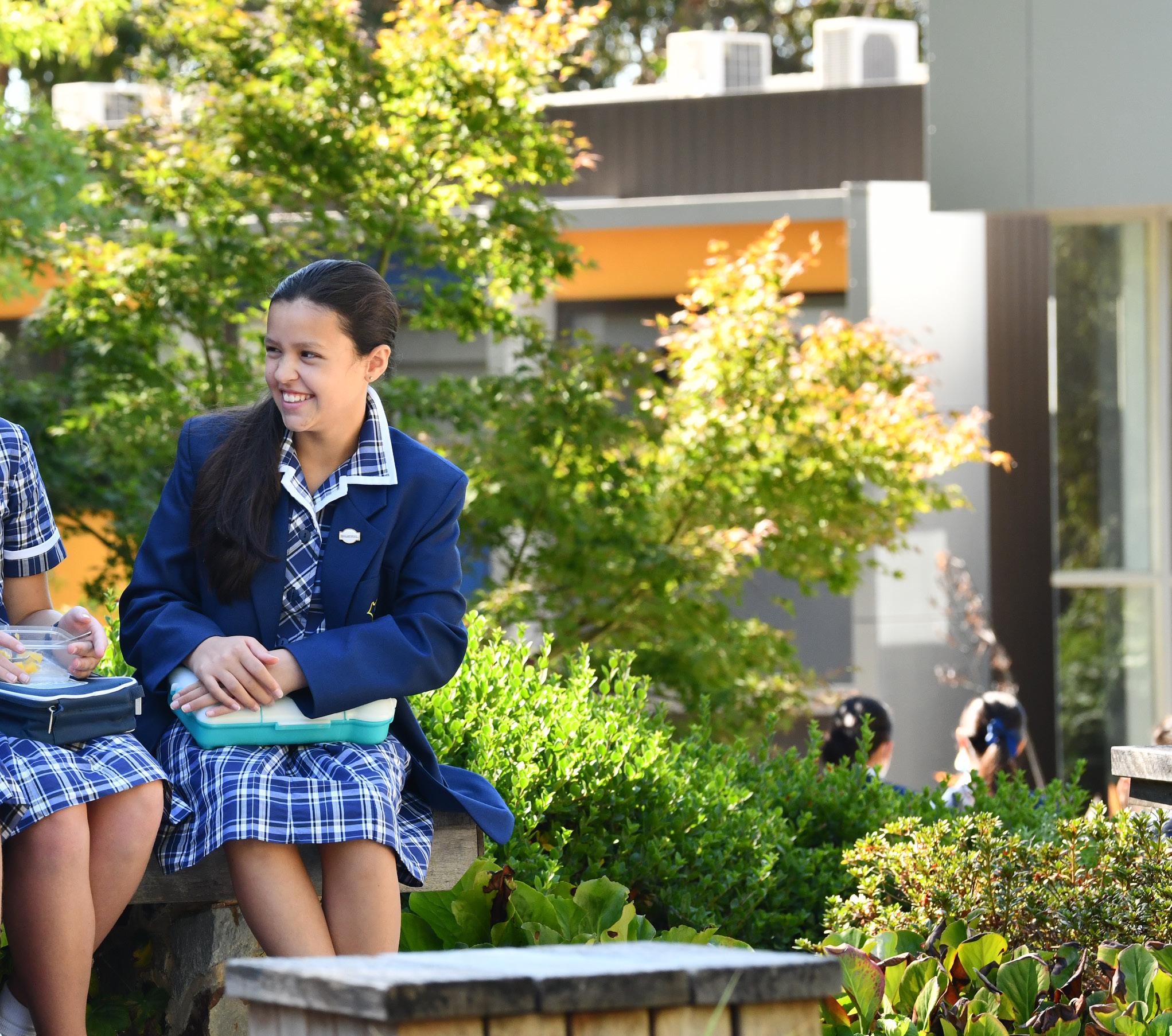
The curriculum at Presbyterian Ladies’ College is designed to ensure that all students attain high standards of literacy and numeracy. As well as this, the College seeks to fully develop knowledge, skills and understanding across all learning areas and seeks to nurture the spirit, talents and capacities of every student. These include students:
• becoming lifelong learners with creative, holistic and analytical approaches to thinking;
• gaining knowledge and understanding of the Bible and appreciation of the importance of life’s spiritual dimension;
• developing strong character founded upon values, attitudesand regard for self and others, consistent with the teachings of Christianity;
• having qualities of self-confidence, optimism, resilience, wisdom, healthy self-esteem, and a commitment to personal excellence as a basis for their relationships within the family, community and as workforce members;
• being active and informed citizens of our democratic Australian society within an international context;
• having skills in analysis and problem-solving, the capacity to work independently and co-operatively in a group context, and the ability to become adaptable, innovative, confident and technologically literate members of their society;
• having the knowledge and cultural understandings which respect individual freedom and celebrate languages and cultures within a socially cohesive framework of shared values;
• being confident communicators in order to contribute actively across a range of situations;
• having the confidence to contribute to or lead a team in a variety of situations;
• developing an understanding of the present and the past in order to promote responsible and creative attitudes towards the future;
• developing a commitment to service and social justice;
• developing a commitment to understanding, preserving and restoring the natural environment through responsible lifestyle choices;
• promoting a lifestyle that enhances health, personal wellbeing and the creative use of leisure time;
• having an appreciation of, and confidence to participate in, the Arts.
The core curriculum in Years 7 - 10 provides both depth and breadth in the key learning areas, and aims to challenge and enthuse as well as to maximise the potential of each student.
The elective program in Years 9 and 10 allows for wide subject choice so that students can explore subjects in depth or embark on a new path of learning. Students are encouraged to be creative and flexible, independent learners and problem solvers - qualities essential for the challenges of modern life. The academic program in these years is designed to provide students with strong academic foundations so that they may confidently choose either the Victorian Certificate of Education (VCE) or the International Baccalaureate (IB) Diploma in their final years of schooling.
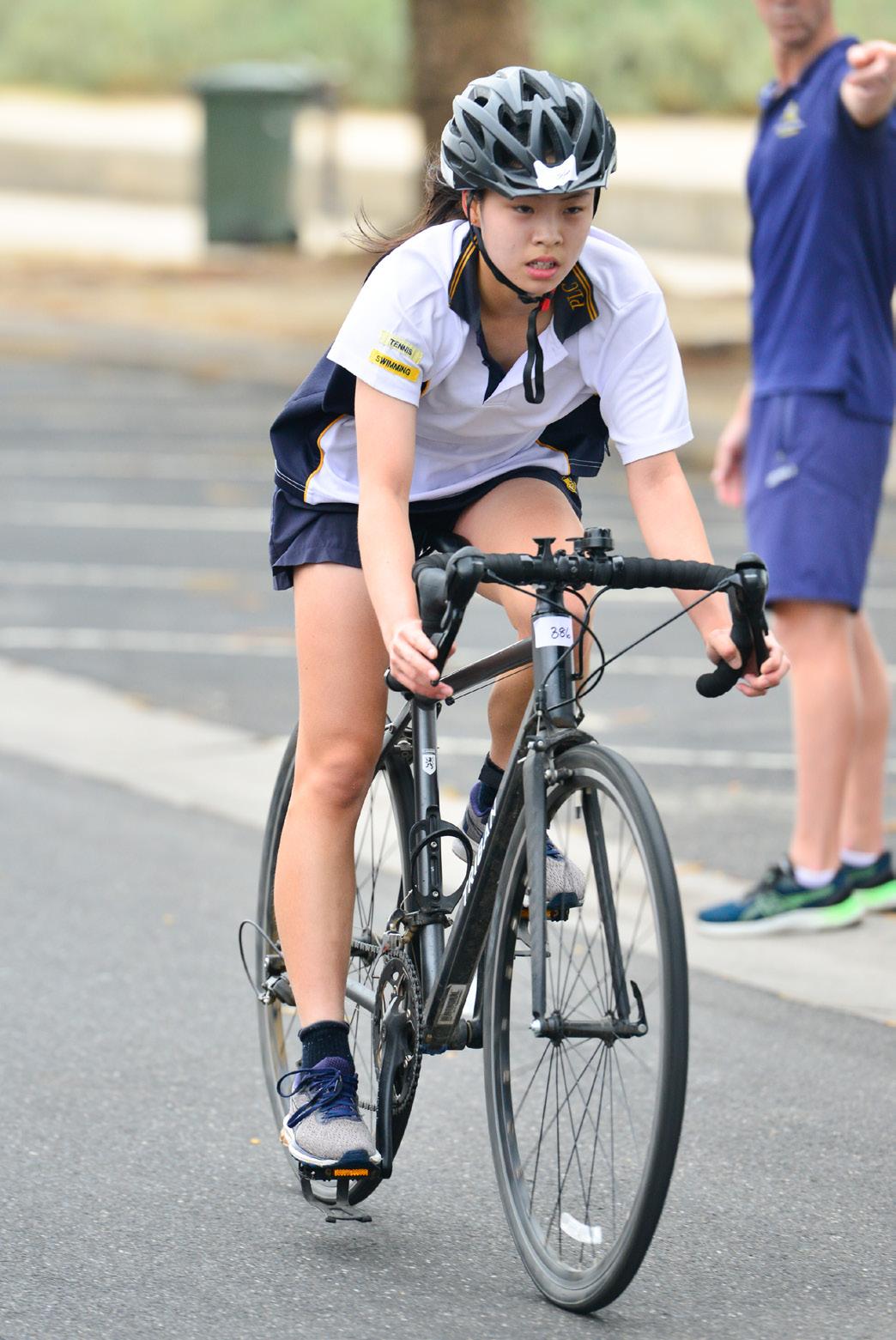
Learning involves a complex system of interactive processes which is reflected in our classroom practices. In Year 7 an essential element of the curriculum is the visible thinking approach where teachers work with each class to include the explicit teaching habits that facilitate thinking about learning and learning about thinking. A range of teaching approaches and learning strategies are used to:
• develop positive attitudes and perceptions about classrooms and learning;
• guide students to acquire and integrate new information with what they already know;
• develop in-depth understanding through the process of extending and refining students’ knowledge;
• provide activities that allow students to use knowledge in meaningful ways;
• enable students to think critically and creatively, work collaboratively and regulate their own behaviour;
• encourage exploration of ways of thinking.

During the middle years of their schooling, young adolescents are encouraged to:
• adjust to physical, emotional, social and intellectual changes as they grow towards adulthood and independence;
• learn to think in ways that become progressively more abstract and reflective;
• gain experience in decision-making and in accepting responsibility for these decisions;
• develop self-confidence by recognising and appreciating their own sense of identity;
• have opportunities for establishing and maintaining friendships; explore leadership challenges;
• achieve personal success and fulfilment.
A coherent personal development program incorporating these ideas has been created to ensure students achieve their potential. The program focus in Years 7 and 8 is to:
• help all Year 7 students and girls new to Year 8 settle in and happily adjust into the Senior School;
• build skills of organisation and management to cope with the extra demands of the Senior School;
• facilitate and encourage friendships throughout the year level; help students interact in a more meaningful way with their peer group and family;
• build self-awareness, independence and self-confidence; foster co-operative behaviour;
• foster resilience and adaptability; and
• encourage and educate students to be responsible cyber citizens.
In Year 9 the personal development focus includes:
• developing responsible decision-making;
• introduction to positive psychology;
• discovering one’s own strengths and identity;
• extending existing leadership skills; and
• building positive wellbeing habits.
The Year 10 program is loosely based on Stephen Covey’s ‘Seven Habits of Highly Effective People’. Each Habit provides a scaffold to explore the following:
• to put into practice, throughout the year, the leadership skills developed in the Year 9 Program;
• to identify and understand individual qualities of leadership, and to recognise and understand one’s own leadership characteristics and how best to develop them;
• to consolidate skills and abilities to prepare effectively for the final years of secondary school;
• to encourage personal exploration of values, responsibilities and directions as students reach middle adolescence;
• to explore options and increase knowledge about career directions;
• to provide sessions on examination preparation and stress management.
As in earlier years, the Personal Development program continues in allocated timetabled periods in which the curriculum ranges from practical preparation lessons for examinations, work experience and career choices, to emotional intelligence to better understand oneself and one’s interaction with others. In addition, effective and responsible decision-making in personal relationships is part of the course.
All class teachers provide care for students. Form Assemblies are the prime time when Form Teachers meet with their form group and build relationships so that each student feels valued and nurtured. This time also provides the opportunity to deal with administrative issues and school procedures, such as excursions, lateness, coping with illness and homework. Form Teachers help students with study and personal management skills appropriate to their year level and work with students on their learning goals. They also spend time fostering involvement in service and co-curricular activities and encouraging students to be active participants in College life. The Personal Development program further promotes and encourages the personal growth of each student.
In Years 7 - 10, all students participate in year level camps. Involvement in challenging adventure experiences in the natural environment is an essential component of the personal development and leadership education of each girl at the College. This occurs away from the confines of the school timetable, home routine, technology and consumerism. The Outdoor Education program is developed sequentially, so that each year the students grow in confidence and independence.
Led by skilled Outdoor Education specialists and College staff, each girl will:
• discover more about herself, develop self-confidence, independence and a sense of responsibility;
• develop skills in working co-operatively, fostering communication and a caring attitude to others;
• gain a greater understanding of leadership;
• experience various natural environments and appreciate their use and care;
• develop skills and interests that promote purposeful use of leisure time in the future.
A fundamental principle of the College is the care of and concern for others, which includes both practical and philosophical commitment to service.
The values of service are expressed:
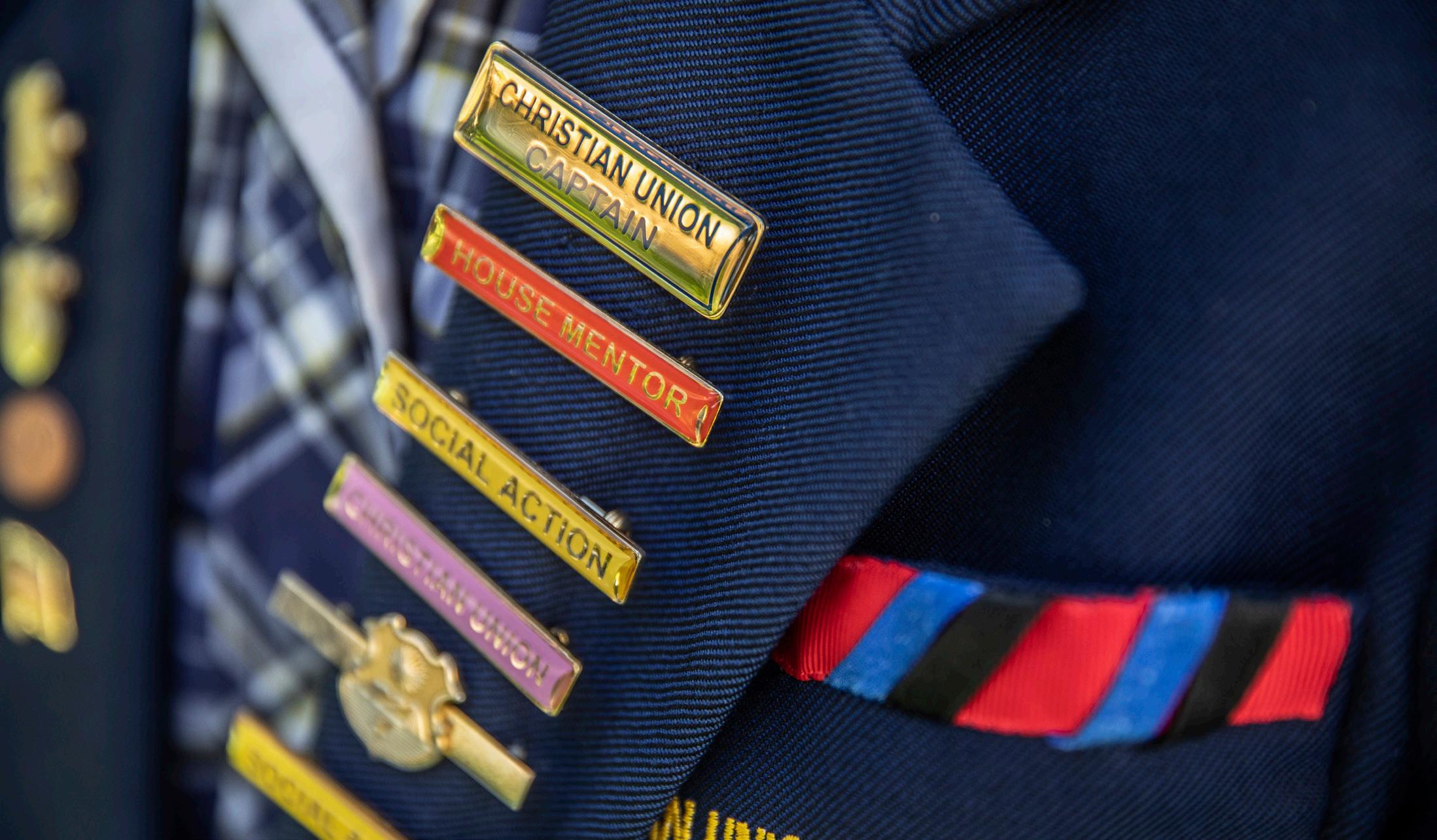
• in School Assemblies;
• through the practical operation of the Student Welfare Policy;
• in various curriculum areas such as Christian Studies and Personal Development programs;
• through regular fundraising efforts such as weekly collections for a particular charity, Quad Days and Year Level charity efforts;
• through Community Service;
• in the ongoing support for Neno Girls’ School, Malawi;
• in community-based activities and commitments.
Each year thousands of dollars are raised and distributed to various organisations through the fundraising efforts of the students.
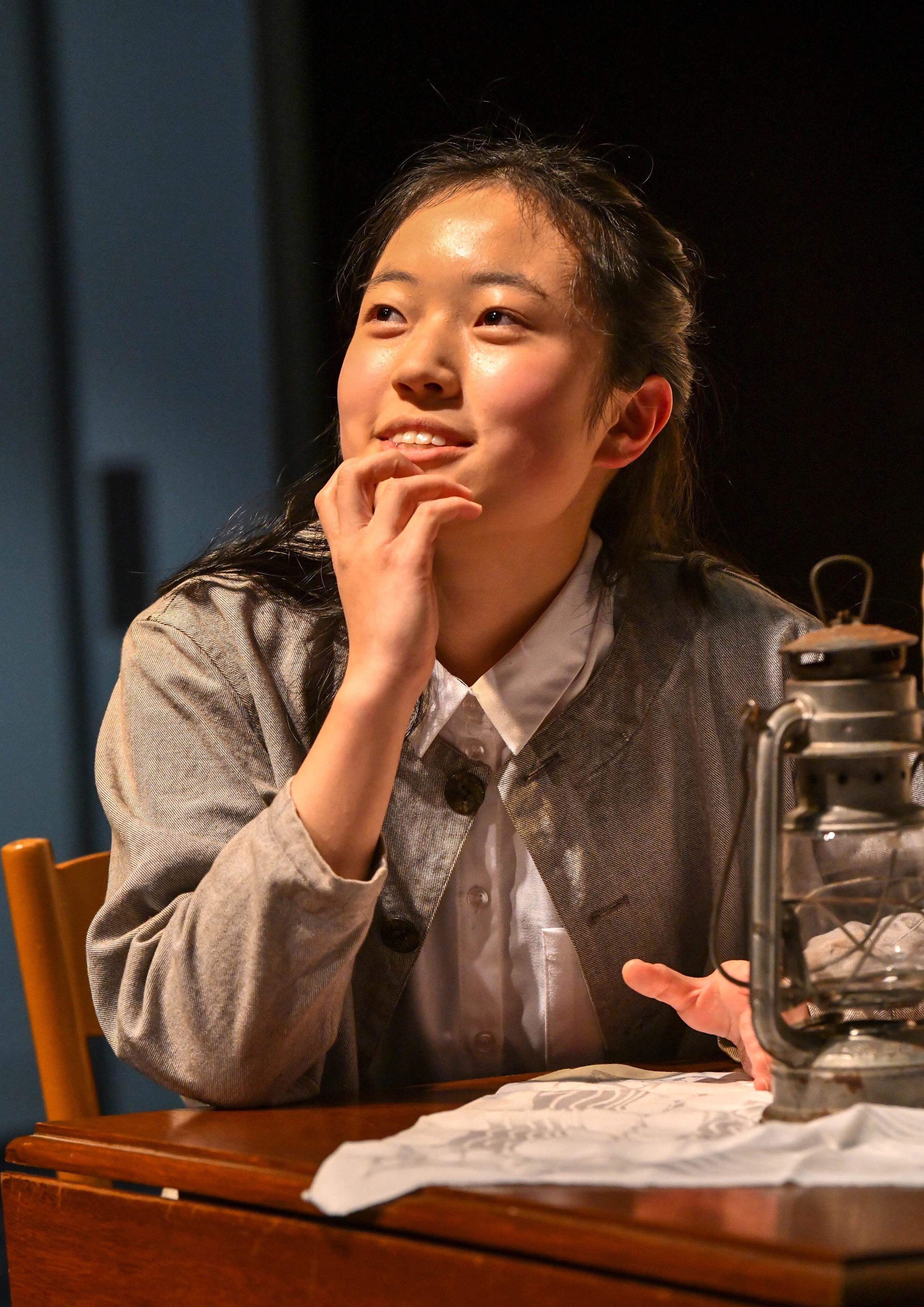

The transition program for Year 7 commences while the student is in Grade 6, with transition interviews and Orientation Day occurring throughout the year. Welcome Day is held at the beginning of Term 1, for all students who are new to Secondary School at PLC. These occasions enable the girls to forge relationships with other girls, their Form Teacher and Year 7 staff. Parents are encouraged to meet with the Year Level Co-ordinator on a needs basis and with each other at events such as the Twilight Picnic. New Year 8 students are also invited to an Orientation Day before commencing their school year on Welcome Day. Buddies are assigned to these new girls to help with orientation and transition into the College.
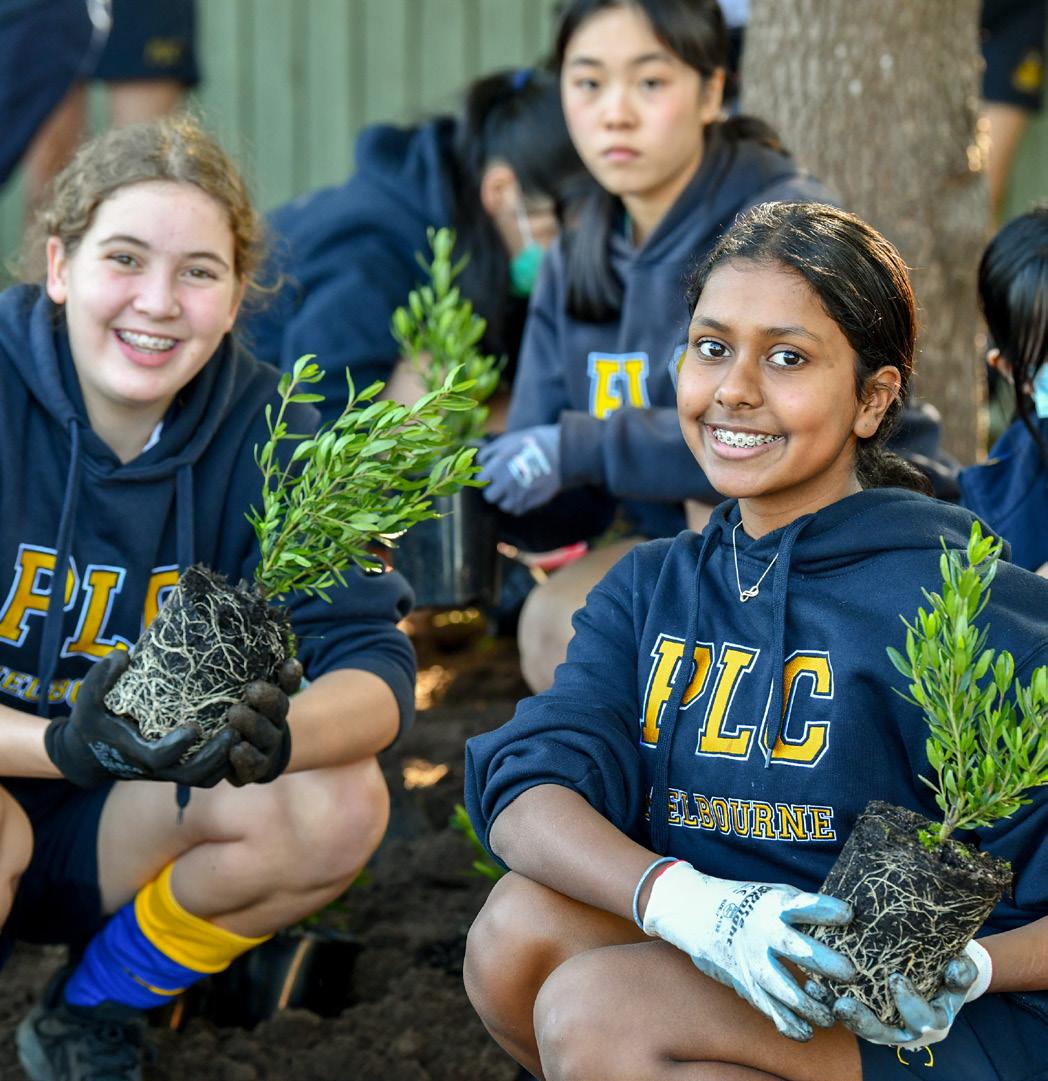
Varied educational experiences are critical for developing independent and thoughtful learners. PLC acknowledges the specific needs of students at Year 9 and has created an exciting and challenging year-long program that encourages students to step outside their comfort zone, expand their horizons and learn new skills. The purpose of this program is to increase independence, create authentic learning experiences outside the classroom, encourage creativity and problem-solving skills and develop resilience. It is undertaken by all Year 9 students.
The program aims to build knowledge and skills in a wide range of areas, complementing the academic curriculum and the area of personal development at this Middle School level.
There are four strands that operate interdependently to encapsulate the spirit and content of OutLook.
The Outdoor Education program at Year 9 takes place early in Term 1 and is compulsory for all girls. The fiveday program is run in conjunction with the Outdoor Education Group (OEG), a company specialising in school outdoor programs, and takes the form of a journey on water and through the bush. Planning and preparation sessions are held for all students prior to the camp. The girls are organised into groups of 10 – 12 within their chosen areas and on the journey they are self-sufficient, carrying personal and group gear, food and supplies. Skills in leadership, personal growth, initiative, increased independence and responsibility are all outcomes of the camp. Journal writing also encourages reflection about the experiences and the skills learnt.
All students undertake OutLook Learning for one semester. This course engages students in expanding their horizons. It comprises the following units of study: rights and responsibilities, civics and citizenship, conscious consumerism, Fair Trade and ethical decision making. An excursion each term encourages students to gain confidence using public transport and bring their learning to life. The students use various research tools to collect data and make informed comments on local issues.
Advocacy and volunteering underpin the OutLook Community Action Program. Students examine a range of issues focused on social justice and environmental sustainability. They reflect on their talents and use their initiative to create an action plan outlining how they will engage with the community on their chosen issue. Time is given in Term 2 for all students to complete their action. The OutLook Community Action program is a wonderful opportunity for girls to discover how they can make the world a better place whilst also developing the PLC Graduate Outcomes of becoming a Citizen, Advocate and Leader through service to others.
Students spend five days in the Melbourne CBD, based at The Scots’ Church. An orientation program is run on the first day to familiarise students with the city environment. The remainder of the week consists of timetabled visits to particular landmarks and locations, together with SelfInitiated Projects, which are pre-planned and give students, working in groups, the freedom to explore an area of interest in the city. Emphasis is on group work, journalstyle documentation and increased personal awareness in this challenging and exciting environment. A presentation evening for parents is held after the program.
In Term 4 of Year 10, girls experience a 5-day program of their own choice. At this level students have experienced a wide range of activities through the Outdoor Education program and, on the basis of this and other interests, they select a particular activity or activities to participate in during the camp. The girls are involved in much of the preparation and planning for these camps, taking responsibility for the menu planning, food and daily program. Camps have included: bushwalking, cycling, rafting, surfing, rock climbing, horse riding and canoeing, among others. For many girls this is one of the highlights of their school life and a chance to spend time with friends in the outdoors participating in a recreational activity.
All Year 10 students, 15 years and older, undertake work experience for one week, for the purposes of sampling a work environment, developing self-confidence and clarifying career aspirations.
The College actively encourages students to undertake work experience to enable them to:
• develop job seeking skills;
• experience work in a field they may be considering as a career;
• assist in the clarification of tertiary study options;
• develop self-confidence from working in a setting which requires contact with a range of people;
• gain experience and develop a network which could assist in gaining tertiary selection and future employment;
• provide an opportunity for all Year 10s to sample a workplace beyond the college.
With assistance from the Careers Department, each student is expected to find a suitable placement for this week.
The SILK (Service, Initiative, Leadership, Knowledge) program is closely linked to the Personal Development program at this year level. SILK represents leadership and service to others.
Girls nominate an area of school life where they can contribute and they are encouraged to be individual in their choices, which are many and varied, e.g. Year 7 Camp leader, backstage helper for school productions, editor for House magazines, a position on a school committee or club, Big Sister/Little Sister for the Junior School and participation in the PLC Rotary Interact Club. Girls can explore their interests and talents and develop their interpersonal skills.
The Keep Rising Transition Program is a wellbeing and learning initiative to assist students to maximise their potential in their senior years of schooling. The program consists of an evening parent/daughter forum, a day program and careers workshops for all Year 10 students. Students participate in workshops on time management, self-defence and mindfulness, designed to enhance their wellbeing.
A two-day experiential learning program where students explore essential knowledge and skills associated with living in a democratic society. Students investigate the three levels of government, the functioning of parliament and the preferential voting system. By actively participating in a simulated election campaign, the students gain a deeper insight into the philosophies of each of the main political parties and apply this knowledge to key issues that might affect the voting intentions of people in different electorates. Students are assigned key roles and develop their problem-solving, collaboration and communication skills. As part of the program, parliamentarians are invited to speak to the students.
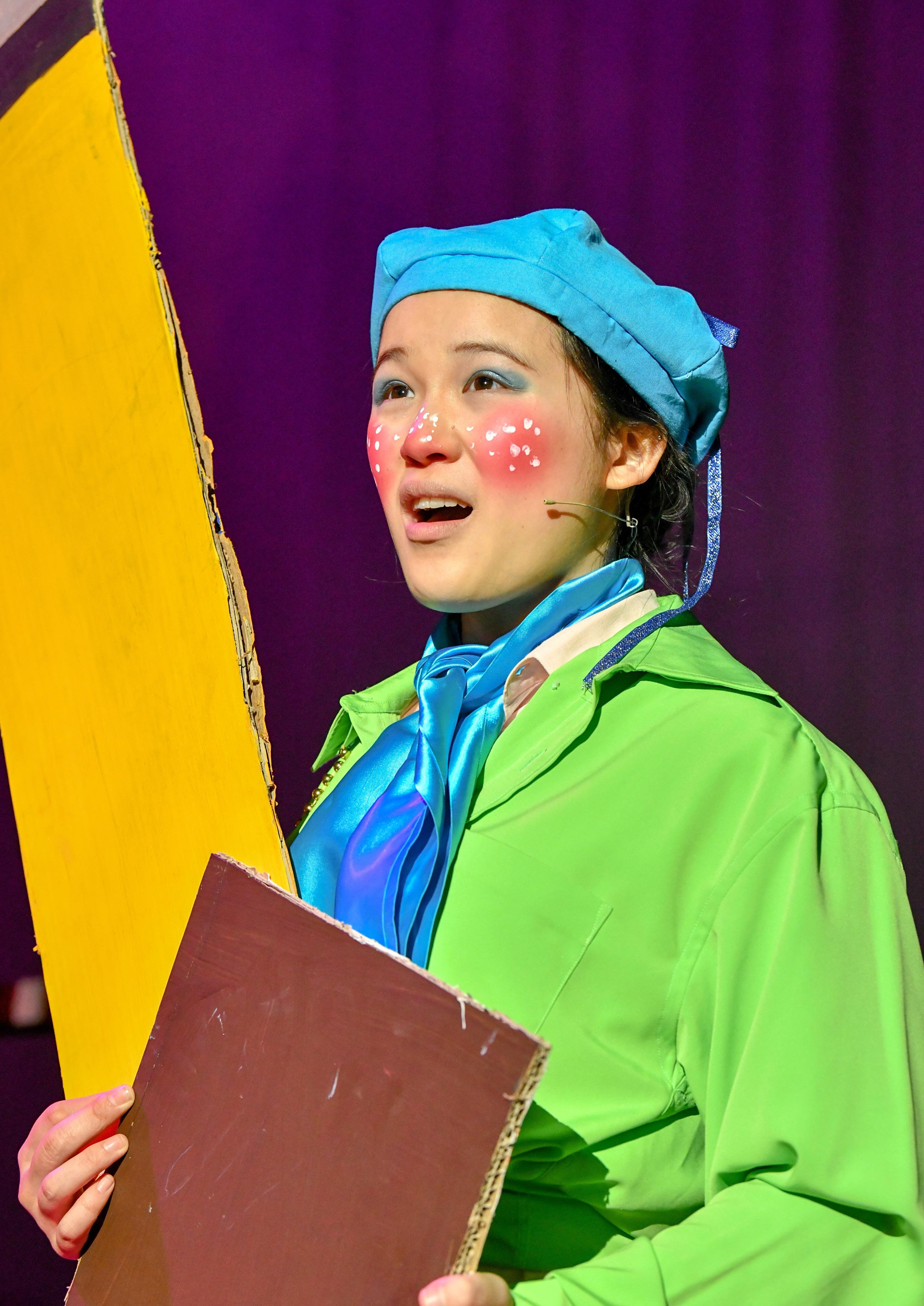
The six Houses - Atholl, Balmoral, Glamis, Leven, Rosslyn and Stirling - are named after Scottish castles. Participation in House activities is a long-standing tradition at the College and allows girls to develop new interests, form new friendships across year levels and to assume leadership responsibilities. Some examples of the numerous House activities include:
• Athletics
• Swimming
• Cross Country
• House Concerts
• Theatre Sports
• Team Sports
• Debating
• Aerobics
• Gymnastics
• Mathematics
• Public Speaking
House activities are organised by the House Captains who have been elected by the other members of their House. In addition to the Senior Captain and two Vice Captains who are Year 12 students, the girls in each House elect an Intermediate Captain from Year 10 students and a Junior Captain from Year 8.

Music is a part of the core curriculum for Years 7 and 8 students. Girls may also choose the elective music classes in Years 9 and 10 and the music courses of the Victorian Certificate of Education and the International Baccalaureate Diploma in Years 11 and 12. In addition, girls may learn an instrument from our professional team of music teachers. Tuition in all orchestral and band instruments, as well as piano, organ, harpsichord and voice, is available. The music program caters for musicians of all abilities and membership of ensembles and choirs is open to all interested students. Students who learn an instrument from the Music School are required to join at least one ensemble. Performance opportunities include:
• the annual College Concerts;
• the Gala Celebration;
• a weekly music assembly in Wyselaskie Hall;
• lunchtime and evening small concerts and jam sessions for shared music-making;
• participation in community festivals, eisteddfods and competitions.
The sport and physical education program at the College aims to develop personal fitness and provide opportunities for all girls to participate in a range of enjoyable physical activities. In addition to their compulsory Physical Education classes, all students participate in inter-house sport and are encouraged to participate in inter-school sport. PLC belongs to Girls’ Sport Victoria (GSV) and special skill training is provided for all sports. There are opportunities for students to participate in carnivals, competitions and weekly sport matches.
• Aerobics
• Athletics
• Australian Rules Football
• Basketball
• Badminton
• Cricket
• Diving
• Equestrian
• Fencing
• Golf
• Hockey
• Netball
• Rowing
• Snow sports
• Soccer
• Softball
• Swimming
• Synchronised Swimming
• Tennis
• Track & Field
• Triathlon
• Volleyball
• Water Polo
The Duke of Edinburgh International Award is about empowering, experiencing and achieving. Students get to base their Award around their passions and their ambitions, open to young people aged between 14 and 25.
Year 9 students have the option of undertaking the Bronze level of the Award, completing activities in four different areas: Physical Recreation, Skills, Service and Adventurous Journey. A commitment to using out-of-school time is expected. The Year 9 Outdoor Education program can be used to meet the requirements of the Adventurous Journey section at Bronze level. Students in Years 10, 11 and 12 also have the opportunity to join the Award at Bronze, Silver and Gold Level depending on their age.
For further information please visit the website www.dukeofed.com.au
As part of the College’s commitment to providing a wellrounded education, girls can explore and develop their talents and interests in a variety of activities, clubs and committees. Some examples of these opportunities include:
• Art Club
• Book Club
• Chess Club
• Christian Union
• Classics Club
• Computer Club
• Dance Club
• Debating
• Drama Club
• Dressmaking
• Duke of Edinburgh International Award
• International Week Committee
• Jindi Worabak Reconciliation Group
• Knitting Club
• Library / Archives Committee
• Magpies Literature Club
• Maths Committee
• Patchwork Committee
• Public Speaking
• Script Writing Club
• Social Action Committee
• Sustainability Committee
• Tech Crew / Club
• Theatre Productions
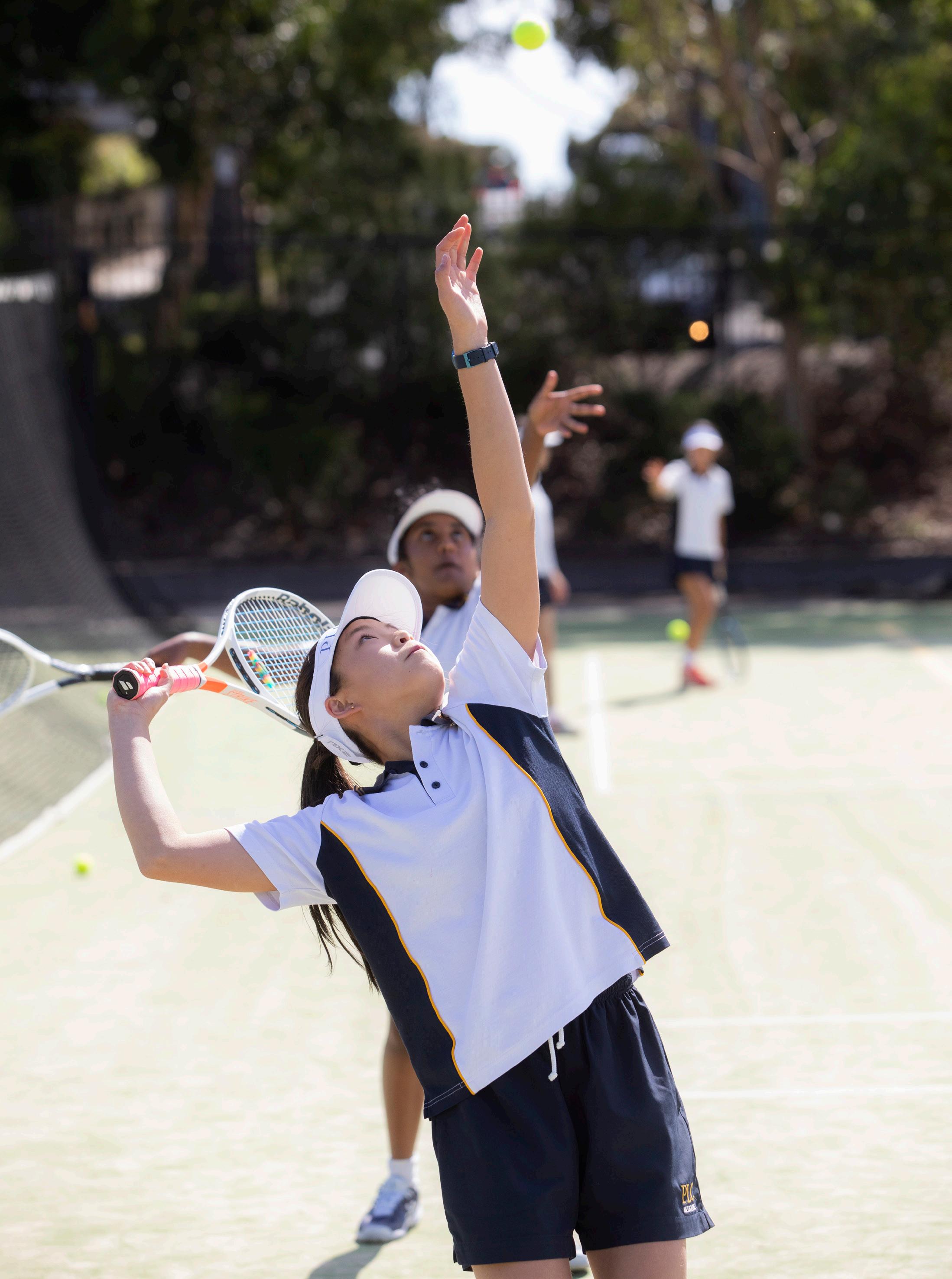
The College seeks to encourage and nurture individual potential by developing in each girl a love of learning and an enthusiasm for study. The Learning Enhancement Department assists in the identification of the learning needs of students and makes this knowledge available to class teachers. Opportunities to experience and develop advanced thinking skills are available through courses of extension studies and co-curricular activities.
Assistance for students with identified learning needs may be of short duration providing intensive instruction in particular areas, or long-term support allowing for development of academic skills necessary to study successfully at senior levels. Students may be self-referred, recommended by subject teachers or wellbeing personnel or requested by parents. Programs that cater to students in Years 7 to 10 include:
• Learning Support classes, which are available to recommended students at Years 7 to 10. These nongraded courses aim to extend students’ skills in the areas of oral language, reading and writing. Each student follows a program based on individual needs in order to develop competence and confidence, to improve organisation and time management and to support her learning across the curriculum.
• Individual tuition for students from Year 7 to Year 12 may be recommended after consultation with appropriate personnel.
Programs for academically gifted students are offered throughout PLC. These programs provide a range of learning experiences that give students the opportunity to explore their interests and enhance their exceptional talents beyond the curriculum, in a challenging and collaborative environment.
Years 7 and 8 offer highly able students an opportunity to be involved in a range of different extension activities that expose them to a variety of disciplines and challenging tasks. Competitive programs such as da Vinci Decathlon, Tournament of Minds and Future Problem Solving are regularly accessed. Training sessions for these events are provided and opportunities to be involved in a variety of extension workshops and clubs are offered throughout the year. Individual subject areas also offer entry into a range of different programs and competitions, including:
English
• JMAPS Public Speaking
• Dorothea Mackellar Poetry
Mathematics
• The University of Melbourne Mathematics Competition

• Australian Mathematics Competition
Science
• CREST Projects
• ICA Science Competition
The Years 9 and 10 Extension Program gives advanced students the opportunity to engage in a wide range of opportunities depending on their interest and ability. Programs include competitions, such as the Australian Computational Linguistics Olympiad, Ethics Olympiad, da Vinci Decathlon, Tournament of Minds and Future Problem Solving. There are many additional opportunities for girls to participate in such as Model United Nations, Debating, Chess, Parliamentary Conventions and more.
PLC maintains and develops strong relationships with tertiary institutions, notably, Melbourne and Monash Universities, which yield many opportunities for girls to be involved in a variety of different activities offered throughout the year. Individual subject areas also offer a range of different programs and competitions, including:
English
• JMAPS Public Speaking
• Dorothea Mackellar Poetry
EAL (English as an Additional Language) Students
Support for students with English as their second language is offered from Years 7 to 12. This assistance aims to ensure effective integration into all aspects of school life and includes communicative and formal academic language skills, appropriate study skills and aspects of cultural transition.
Support for Year 7 and 8 students undertaking EAL classes includes:
• EAL-specific courses which offer assistance in the areas of oral language, reading and writing. Each student follows a program designed to develop competence and confidence in English language skills and to support her learning across the curriculum;
• Teacher-requested assistance within the classroom;
• Modification of mainstream curriculum and tasks which can be be initiated after consultation between subject teachers, Year Level Co-ordinators and EAL teachers.
Mathematics
• The University of Melbourne Mathematics Competition
• Australian Mathematics Trust Enrichment Series
• Australian Mathematics Competition
• Mathematics Olympiad
• Micro Mathematics
• University of Melbourne Mathematics Reseach Project
Support for Year 9 and 10 students undertaking EAL classes includes:
• EAL specific courses offering overall course assistance;
• Small group classes which are designed to develop competence and confidence in English language skills. Individualised assistance may also be offered in the areas of oral language, reading and writing for overall support across the curriculum;
• Teacher-requested assistance within the classroom;
Science
• Science Talent Search
• BHP Billiton Science
• Engineering Awards
• Modification of mainstream curriculum and tasks carried out in consultation between subject teachers and EAL teachers.
The Year 10 EAL English class is designed to teach students to:
• Develop and justify their own interpretation of texts;
• Understand how language features and images are used in persuasive texts;
• Create a range of texts to explore how language is used for different audiences and purposes;
• Develop listening and speaking skills.
Exploration of career choices is relevant throughout a student’s education and increases in importance as the student progresses into her senior years. Elective subjects in Years 9 and 10 provide the opportunity for students to identify their interests and strengths whilst undertaking a holistic approach to their studies. From Year 10 students are guided to an extensive range of resources related to occupational information, tertiary courses including local, interstate, and overseas and prerequisite subjects required to gain entry to these study programs. All students from Years 10 to 12 receive Career News weekly. Parents also have access to this resource. This provides relevant careers information and updates of related activities. From Year 10 all students should be engaging with tertiary institution Open Days and school holiday activities.
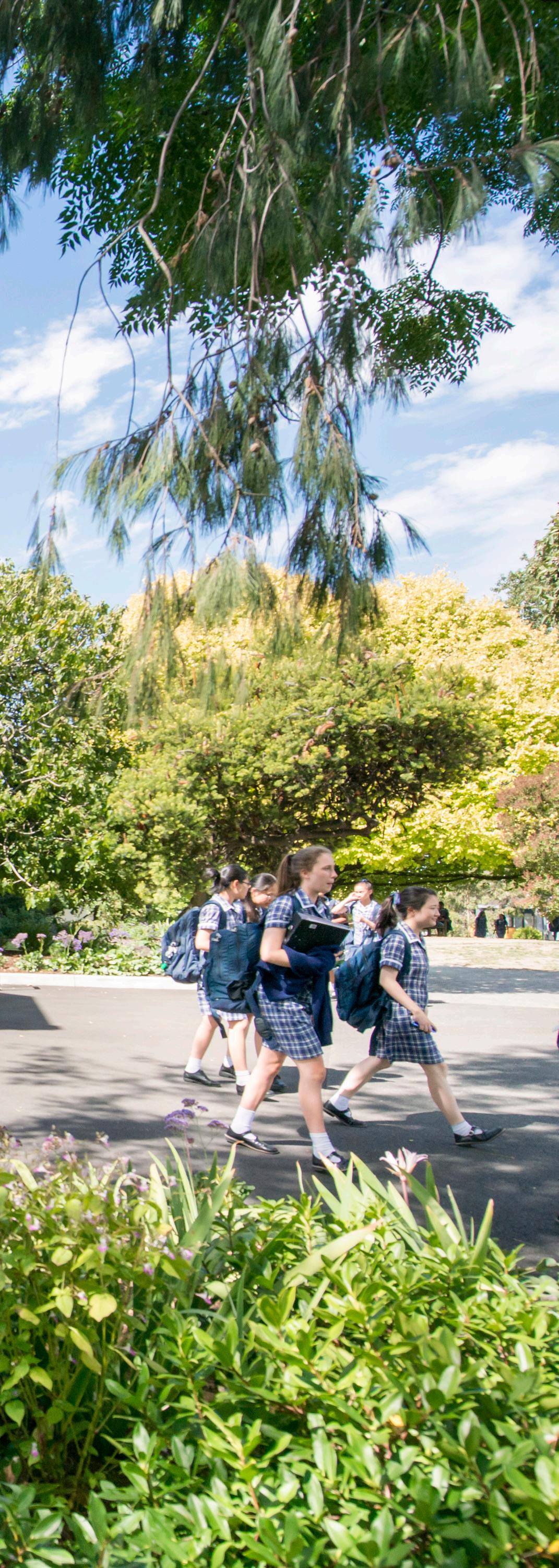
All Year 10 students will undertake the Morrisby Report which is a comprehensive online career profiling system that provides an objective measure of several aptitudes, as well as describing the student’s interests and personality. This information is blended to generate suggestions around careers, study areas and subjects she may be suited to and enjoy.
In Term 3 all Year 10 students will have a personal interview with the Career Development Practitioner to discuss their choice of course and subjects for their senior years. Careers based discussions at school and home assist students with these considerations together with the results of the Morrisby Profile and teacher feedback. The Career Development Practitioner is available to discuss matters related to choice of courses and subjects in Year 11 and 12.
PLC Library Services strive to provide access to a breadth of information in an internationally focused, balanced collection in a range of formats. Library staff nurture and support differentiated learning styles in an encouraging and collaborative environment.
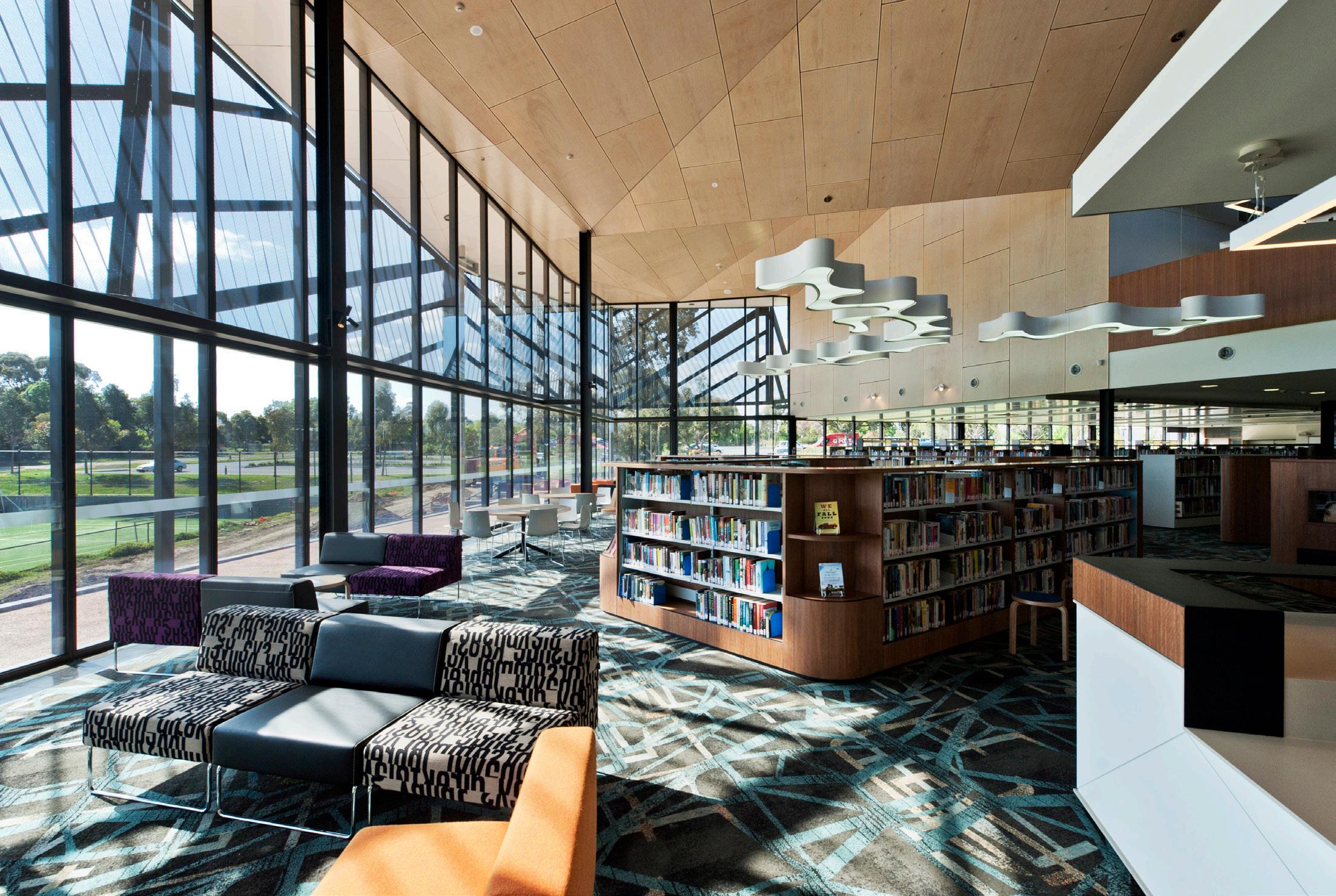
Teacher-librarians work with students in:
• Research Support – Teacher-librarians are on duty to assist during classes with wide-reading choices, information literacy skills and resources. Individual appointments are also available for one-on-one support.
• Information Literacy – through carefully designed curriculum-based inquiry units of work, students engage with a diversity of information, both print and digital, to develop new perspectives.
• Literature – reading is the basis of school achievement and students are immersed in a wide variety of literature from current and new authors to ancient texts. They are encouraged to read for pleasure as well as study.
Students are able to access all resources either by visiting the Library or through the ‘Library Links’ Library Services website. All students are required to use their ID cards to borrow resources.
Students are given the opportunity to become Library Committee members and participate in the daily running of the Library and the planning and execution of Library events.
Monday - Thursday 8.00am - 6.00pm
Friday 8.00am - 5.00pm
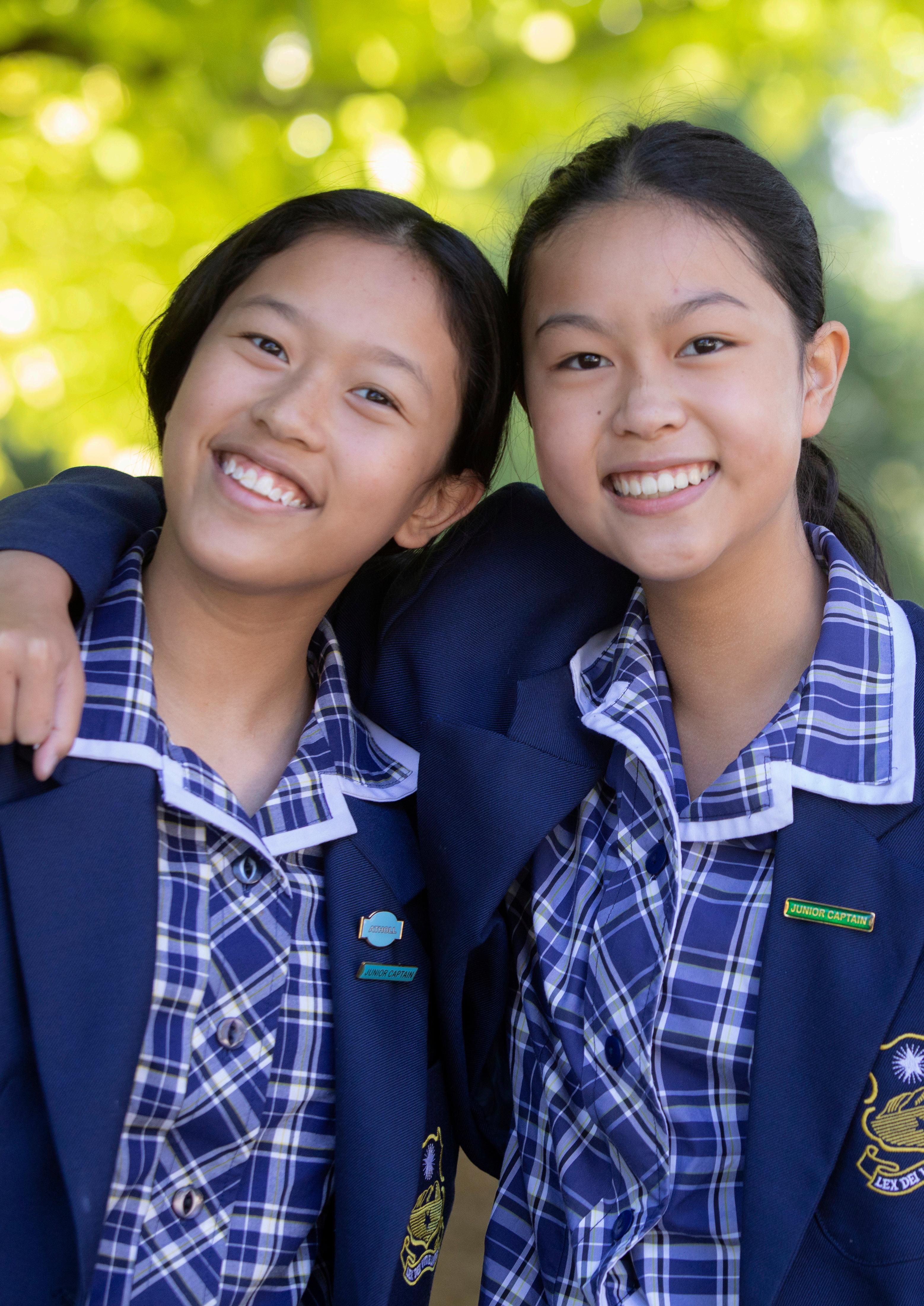
This is to be used as a guide only. Final subject offerings may vary slightly and actual options will be provided in the year prior to commencement.
If selecting one LOTE subject
• Christian Studies
• English / English EAL
• Health
• Physical Education
• Geography
• History
• Mathematics
• Science
• OutLook Program
If selecting two LOTE subjects (inc. French)
• Christian Studies
• English
• Health
• Physical Education
• Geography
• History
• Mathematics
• Science
• OutLook Program
Choose one LOTE or EAL from:
• Chinese Continuing
• EAL
• French Continuing
• LOTE Beginning*
• German Continuing
• Indonesian Continuing
• Japanese Continuing
• Latin Continuing
Choose one LOTE from:
• Chinese Continuing
• German Beginning
• German Continuing
Choose three electives from:
• Advanced Computing & Movies
• Art
• Business Computing
• Ceramics
• Classical Studies
• Commerce: Money Matters
• Design
• Drama
• Food for Life
• Music in Multimedia
• Music Performance
• Nature of Australia & Beyond
• Textiles & Fashion Design
*An introductory LOTE is offered for girls who have not studied any of the 6 languages during their Senior School years
Choose an elective from:
• Advanced Computing & Movies
• Art
• Business Computing
• Ceramics
• Classical Studies
• Commerce: Money Matters
• Design
• Indonesian Continuing
• Japanese Continuing
• Latin Continuing
Second LOTE:
• French
*Electives run for one semester only
• Drama
• Food for Life
• Music in Multimedia
• Music Performance
• Nature of Australia & Beyond
• Textiles & Fashion Design
This is to be used as a guide only. Final subject offerings may vary slightly and actual options will be provided in the year prior to commencement.
If selecting one LOTE subject
• Christian Studies
• English / English EAL
• Health
• Physical Education
• Geography
• History
• Mathematics
• Science
Choose one LOTE from:
• Chinese Continuing
• French Continuing
• German Continuing
• Indonesian Continuing
• Japanese Continuing
• Latin Continuing
Two electives* from the following:
• Art
• Ceramics
• Classical Studies
• Commerce
• Computer Science
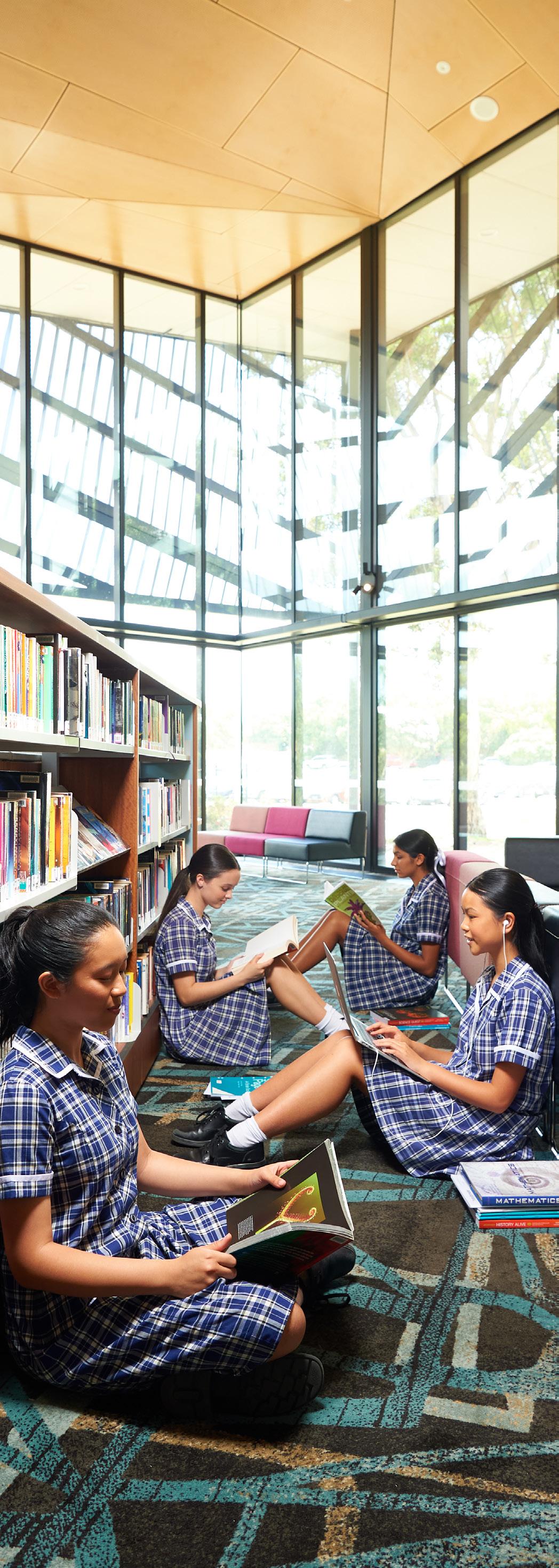
• Design
• Drama
• EAL
• Literature
• Medical Mysteries & Marvels
• Multimedia Art
• Music Performance
• Photography
• Sports Leadership
• Textiles & Fashion Design
• World Food Traveller
• French Continuing
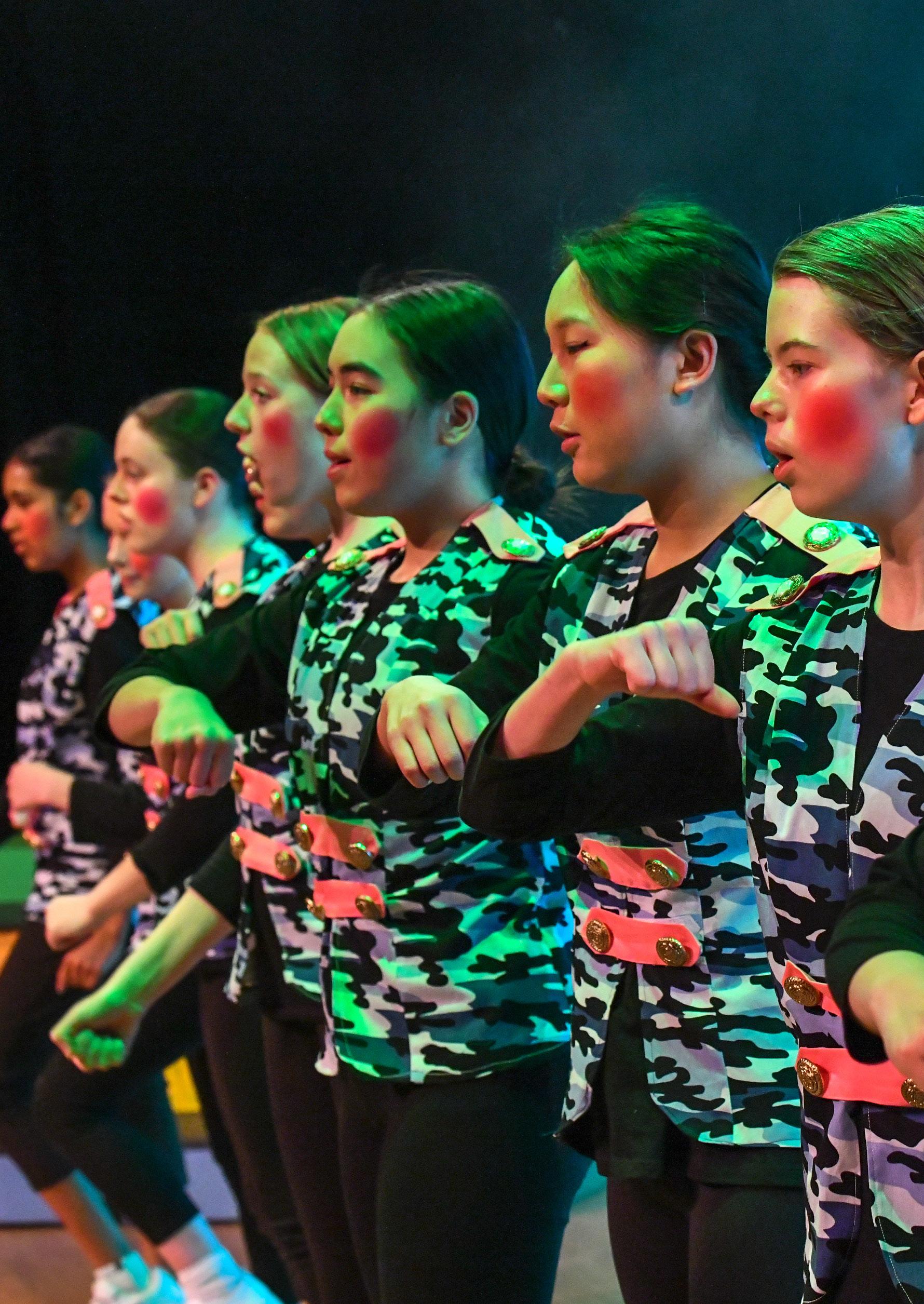
In Year 7 and 8, Art, Music and Drama are included as part of the core subjects for all students. From Year 9, they become electives and students can elect to continue studying these subjects if they wish to pursue them.

Over Year 7 and 8 each student completes a semester in each of the studio areas; Art, Ceramics, Multimedia and Textiles. Students are provided with a supportive yet challenging environment in which to work. Curiosity, exploration and enthusiasm for the Arts are promoted by closely relating Art making to Art Appreciation. At Years 7 and 8, Art is part of the core curriculum.
Overall philosophy and aims of the Years 7 and 8 Program are to:
• make all art classroom experiences exciting, challenging and rewarding for each student;
• introduce students to a range of art materials, tools, techniques and processes;
• develop in each student the personal qualities of persistence, patience and self-analysis and evaluation;
• enrich and vary the repertoire of experience and imagery of each student with emphasis on exploration, skill development and reflection;
• encourage students to appreciate and understand how artists from different eras and cultures have approached similar artistic processes and expressions;
• learn to respect and care for equipment and materials.
In keeping with the Christian ethos of the College, Christian Studies is a part of the curriculum at every year level. There is a particular focus on Christianity and the Bible is a prescribed text.

Our students are encouraged to think for themselves and to approach the study of religion with intellectual commitment, openness, honesty and respect for others. Assessment reflects this multi-faceted approach, based on participation in classroom activities, the quality of the student’s approach to the task, as well as intellectual understanding and knowledge.
The Year 7 course introduces the students to the Bible and consider stories in the Old Testament, focusing on relationships and how God conveys his message. The study then moves to investigate the life and teachings of Jesus, people and events described in the New Testament, and the lifestyle and values of the time. The course looks at the impact Jesus had on people and explores the relevance of Jesus’ teachings in the 21st century.
The Year 8 course relates very closely to students’ personal development and explores the links between values, actions and consequences. This leads to a study of significant individuals in the early Christian church and the history and growth of the church through the centuries. The course then focuses on investigating the life and work of Christian churches in Australia today, which includes a church visit by each student and the exploration of church websites.
The Year 9 course introduces students to the study of world religions through the Book of Esther, and some of the biblical history, culture and religious practices of Judaism. By exploring stories of the Jewish Holocaust in World War II, and the heroic Christian response of women like Corrie Ten Boom, students deepen their understanding of courage, prejudice and forgiveness. In connection with Reconciliation Week, students deepen their understanding of the effects of discrimination and courage through Christian leaders like William Cooper who advocated for the Jews and his own Yorta Yorta people. A short unit on Islam follows at the end-of-the-year. Students also engage in further study of the central message of Christianity through an in-depth examination of the Gospel texts, and the effect Jesus had on his contemporaries, and continues to have on people today.
The year 10 course begins by examining aspects of different world views and how these relate to personal beliefs, values, attitudes and behaviours. The relationship between science and faith is then explored and students are introduced to the idea of an intelligent designer and the faith of various scientists. This is complimented with a study of the nature and function of sacred texts and passages from the Old Testament, including Genesis. The course also provides students with further examination of the practices and beliefs of world religions, other than Christianity. Students’ understanding of Christian faith and teaching is developed further through a study of the Gospel birth narratives.
A toolkit of computer skills and eLearning experiences is developed by each student over two years in this course. It provides sound technical skills, particularly in cloud-based applications, Office applications, multimedia, web publishing and web information. Tasks are planned to support individual learning and each task provides activities that encourage creativity, innovation, interest and collaboration. Developing work strategies such as problem- solving, planning, drafting and debugging are important aspects of the learning approach. Students are introduced to the principles of computer science and use computational thinking and information systems to define, design and implement digital solutions.
Students in Years 7 and 8 use iPads, laptops and desktops to learn to use the most commonly used programs in the College with confidence and skill, and learn to select the most appropriate program for a particular task.

Learning in Drama involves students making, performing, analysing and responding to drama, drawing on human experience as a source of ideas. Students engage with the knowledge of drama, develop skills, techniques and processes, and use materials as they explore a range of forms, styles and contexts.
In their first year of Drama at PLC, students explore a range of basic theatrical conventions and develop a practical and critical understanding of how these conventions of drama can be used to shape and structure drama that engages audiences and communicates meaning. Drama is part of the core curriculum in Year 8 and is a full year course.
Students use a variety of sources including stories from a range of contexts, personal experiences and historical and current events, taking on roles to explore real and imagined worlds. Students learn to think, move, speak and act with confidence. In Drama they learn how to be focused, innovative and resourceful, and work both independently and collaboratively. Students are asked to contribute to class discussions and ensure that their ideas are both heard and utilised when working in group situations. Students learn to reflect critically on their own experiences and further their own aesthetic knowledge and preferences as well as becoming informed audience members by observing, enjoying, reflecting on, appreciating and evaluating their own and others’ work.
Students link their learning in Drama to their skills in English through working on the Drama Festival task. Classes work to devise, script, rehearse and perform original work based on a given stimulus, allowing them to work collaboratively and creatively utilising a range of problem-solving skills.

The English curriculum is built around the three interrelated strands of Language, Literature and Literacy. Students engage with a variety of texts for enjoyment. They listen to, read, view, interpret, evaluate and perform a range of spoken, written and multimodal texts in which the primary purpose is aesthetic, as well as texts designed to inform and persuade. Students create a range of imaginative, informative and persuasive types of texts, for example, narratives, procedures, performances, reports and discussions, and are beginning to create literary analyses and transformations of texts.
Year 7
Unit topics include: Surviving New Challenges, Artful Arguments, The Magic of Film, Literature and Experience, Advertising as Persuasion, and Shared Stories.
Year 8
Unit topics include: Fairytale Archetypes, Responding to Adversity, The Role of Culture, Poetry as Social Comment, The Role of the Media, Challenging Ideas, and Exploring Ideas through Performance
Year 9
Unit topics include: The Shaping of Identity, Textual Transformations, and Shakespeare’s Influence.
Year 10
Unit topics include: Shakespeare’s Representation of Human Experience, Media Debate and Our World, To Kill a Mockingbird as a Classic Text, and Representations of Childhood in Film and Fiction
This Year 10 only subject is for students who have been taught in English for 5 years or less (i.e. Year 10 will be your fifth year of learning in English and who qualify to study EAL English in Year 11 & 12.)
As with the mainstream English curriculum, English EAL is built around the three interrelated strands of Language, Literature and Literacy. Learning material is chosen to suit the English ability of EAL students so they are able to engage with a variety of texts for enjoyment. They interpret, create, evaluate, discuss and perform a wide range of literary texts in which the primary purpose is aesthetic, as well as texts designed to inform and persuade. These include various types of media texts, including newspapers, film and digital texts, fiction, non-fiction, poetry, dramatic performances and multimodal texts, with themes and issues involving levels of abstraction, higher-order reasoning and intertextual references. Students develop a critical understanding of contemporary media and the differences between media texts.
This subject provides an environment in which students are:
• encouraged to build their capacity to communicate confidently and effectively in English
• enabled to develop functional English literacy skills
• provided opportunities to draw on their knowledge of the language/s spoken at home as a way to enhance their developing understanding of the English language.
• provided the opportunity to develop cultural understandings to enable their full participation in school life and Australian society.
Years 7 - 10
English EAL (English as an Additonal Language) provides an opportunity to consolidate English skills and develop confidence in using English. Participation in this elective is recommended by the Learning Enhancement Department and/or the Years 7–10 Learning Coordinator for EAL students arriving from overseas. This provides students with the opportunity to focus on:
• developing their listening, speaking, reading and writing skills
• developing the ability to understand and use grammatical structures
• learning vocabulary in context to assist comprehension in other subject areas
Central to the study of Geography is the growing awareness that the distribution of various features over the Earth’s surface are not random but the result of natural and human factors. Geography seeks firstly to gain relevant information and describe a distribution, and then to analyse and understand reasons for it. Maps are an essential component in recording patterns across space and in helping to provide explanations.
Strange and interesting places hold a fascination for all, and throughout Years 7 to 10 it is intended that students gain a broad understanding of different places, peoples and cultures. Attitudes of respect, tolerance and understanding are valued and fostered. Knowledge of Australia’s place in the world, and especially within the Asian region, is developed.
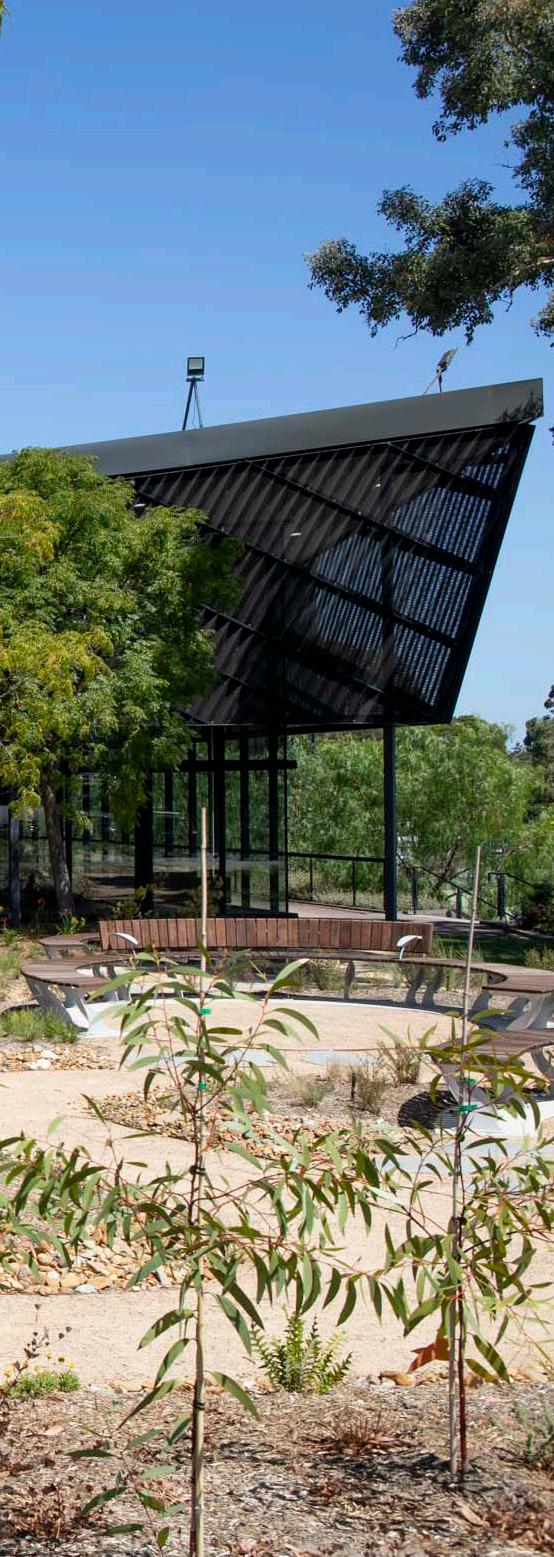
The Geography curriculum presents a structured way of exploring, analysing and understanding the characteristics of the places that make up our world, using the concepts of place, space, environment, interconnection, sustainability, scale and change.
The Geography curriculum aims to ensure that students develop:
• a sense of wonder, curiosity and respect for places, people, cultures and environments throughout the world;
• a deep geographical knowledge of their own locality, Australia, the Asian region and the world;
• the ability to think geographically, using geographical concepts;
• the capacity to be competent, critical and creative users of geographical methods and skills;
• the capacity to be informed, responsible and active citizens who can contribute to the development of a world that is environmentally and economically sustainable, and socially just.
The History curriculum from Years 7 to 10 is designed to develop historical skills and give students the opportunity to gain knowledge and understanding of a wide range of eras and cultures. Students are exposed to both thematic and chronological histories, including the history of the College, Australian history and world history. The teaching of History is active and interactive, and the methodology includes a range of techniques and strategies to enrich students’ experiences. Historical study at Years 7 to 10 encourages the students to think and reflect on the past and build a basis of historical skills and understanding that will equip them with the competencies they need to understand the past in order to solve the problems of the future.
The study of History is designed to develop the student’s historical skills and understanding of historical content; with emphasis on a variety of tasks that develop their critical thinking, problem solving and historical writing. At all year levels, students are assessed on:
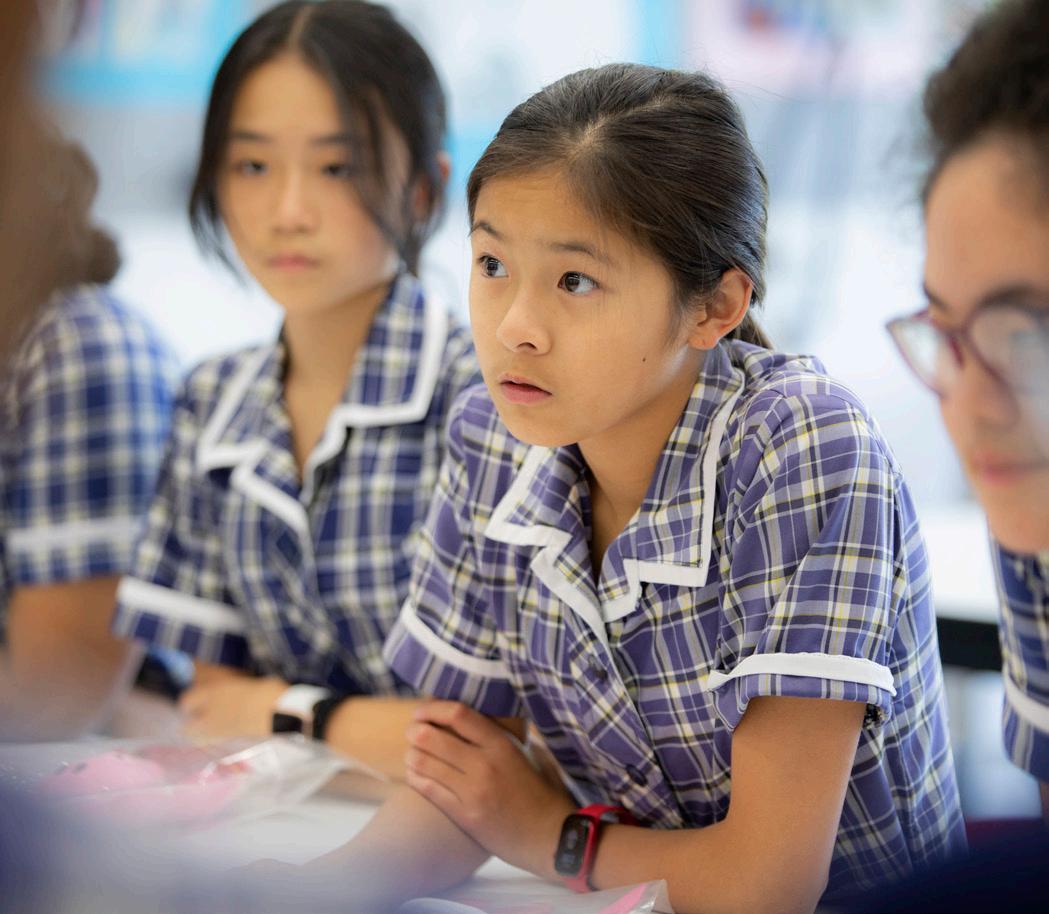
• their understanding of key historical content and concepts;
• their ability to work with evidence which involves research skills, analysis, synthesis and empathy;
• their ability to analyse causes and effect;
• their skills of interpreting sources and judging significance;
• their understanding of change and continuity to inform their future.
• The Historical Toolbox: ‘What is History?’
• Change & Continuity: Ancient Australia and Ancient Civilisations
• Sources as Evidence: PLC History
• Cause & Effect: Medieval Europe and the Black Death (c.590 – 1500)
• Historical Significance: Shogunate Japan (c.794 – 1867)
• Renaissance Italy (c.1400 – 1600) and Spanish Exploration (1492-1572)
• Historical Significance: Making a Modern World (1750-1918)
• Change and Continuity: Australia and Asia (1750-1914)
• Cause and Effect: Australia and World War I (1914-18)
• Cause and Effect: The Causes of World War II
• Historical Significance: World War II
• Sources as Evidence: the impacts of World War II
• Change and Continuity: Rights and Freedoms in Australia and the world
• Interpretation and Perspective in History: Political Crises and Popular Culture
This section outlines the overall structure of the Languages other than English (LOTE) program in Years 7 to 10 at the College. At PLC, all students are required to study two languages in Years 7 and 8 and at least one language until the end of Year 10. This provides all students with the opportunity to experience a breadth of language understanding and culture with the option to continue through to the IB and VCE in Years 11 and 12.
The College offers six languages: Chinese, French, German, Indonesian, Japanese and Latin.
The diagram on the following page indicates pathways and entry points for the six languages.
Years 7–10 Learning Coordinator can discuss available options with new arriving students that may not have sufficient background knowledge in other languages.
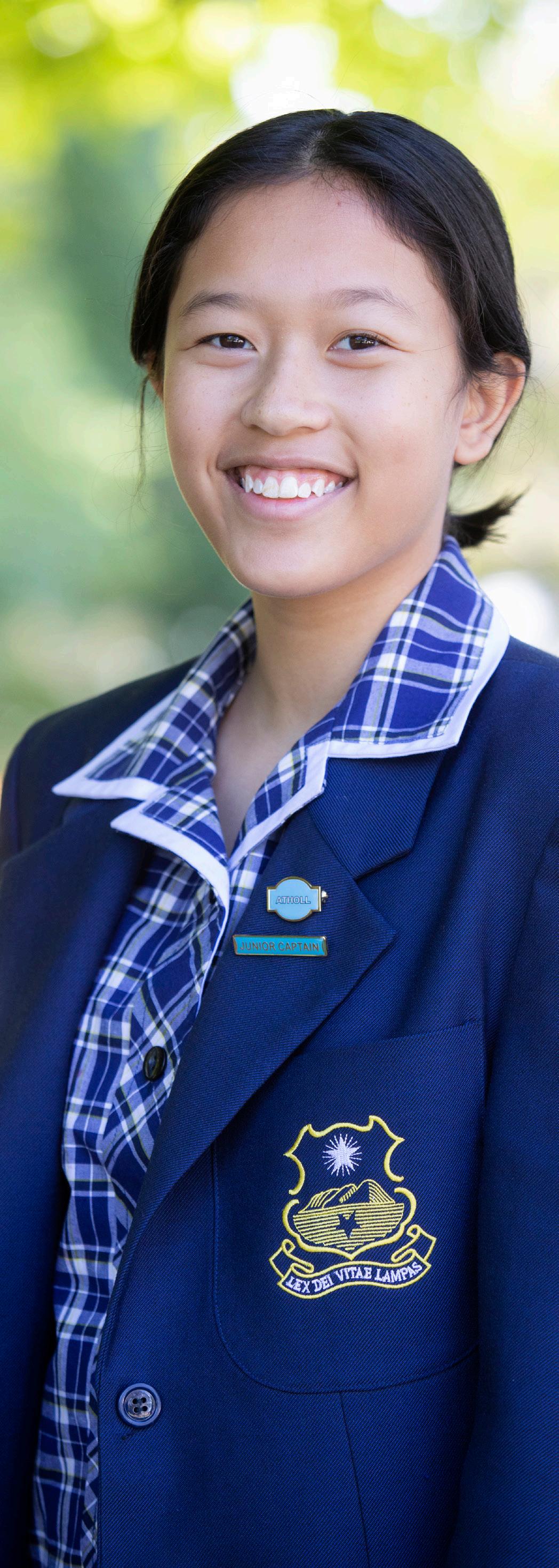
Course structure for French in Years 7 to 10
Year 7 French is offered at a beginner level and at a continuing level if students have studied it previously. At Years 9 and 10, French is offered as an elective to allow students to continue studying French as well as an additional LOTE, should they wish to maintain two languages.
Course structure for Chinese in Years 7 to 10
Chinese is offered in Year 7 to those who have minimal (or no) prior exposure to the language. Students who have a strong command of the Chinese language should select a different LOTE to study in Years 7 to 9.
Students in Year 10 will be placed into Chinese Core (Second language) or Chinese Extended (Second language). The same topic material and linguistic elements are covered in the Core and Extended classes.
Students that perform to a very high standard (in either Chinese language programs) at the end of Year 10 will be appropriately prepared to directly undertake Units 3/4 Chinese in Year 11 as their single Unit 3/4 subject if they decide to undertake the VCE.
Beginner Chinese
Chinese Extended (Second Language)
Beginner Japanese
Beginner Latin
Beginner French
Continuing French
Beginner German
Beginner Indonesian
Standard Pathway

Chinese
Japanese Latin
Beginner French
Continuing French
German
Indonesian
*An introductory LOTE is offered for girls who have not studied any of the 6 languages during their Senior School years. The image above shows German as the Beginners LOTE and is an example only. The Beginners LOTE offered may change anually.
Chinese
Japanese Latin French Core (if doing one LOTE)
French Elective (if doing two LOTEs)
German
Beginner German*
Indonesian
Chinese (Second Language)
Japanese
Latin
French
French Elective
German
Indonesian
At each year level, mathematics classes are timetabled concurrently. This enables differentiation of the curriculum and flexible groupings to meet the individual learning needs of students.
In Years 7 and 8, students are grouped into three bands with all students studying the same core material, as it is on the basis of the core that the following year’s work is built. Enrichment classes are made up of students who work quickly and independently. These students are exposed to learning activities that require considerable analysis and synthesis, and to a significant amount of extension work. Core classes move at a slightly slower pace to enable more individual attention by the teacher. Support classes are generally smaller in size to enable more individual attention be given to students who need reassurance and extra assistance to overcome gaps or weaknesses in their prior knowledge, as well as meeting new material at a suitable pace.
New year 8 students are tested on entry using two tests to ascertain development of skills associated with the previous school year’s learning in mathematics and innate mathematical ability. Allocation to the bands is made on the basis of these test results; however, it must be emphasised again that the composition of these groups is flexible to allow movement, where appropriate, between bands.
From Year 9, an acceleration program is available for those who have shown aptitude and high levels of achievement in all areas of the mathematics curriculum. These students undertake to study the content of Years 9 and 10 in one year and then in Year 10 they have the opportunity to study VCE Mathematical Methods, Units 1 and 2. When these students are in Year 11, they have the choice of broadening their curriculum by taking another Year 11 subject or doing Mathematical Methods Units 3 and 4 and broadening their choice at Year 12.
At Years 9 and 10, enrichment classes are also offered, and through enrichment activities enable talented students to learn at a faster pace and at greater depth than the other bands.
At Year 10, a class also operates for students for whom the traditional Year 10 courses are inappropriate. Its structure and content prepares students for VCE General Mathematics and Further Mathematics at Years 11 and 12, respectively.
A staff member is also available at lunchtimes in the Maths Room to help students seeking assistance with mathematics.

Maths Methods 3/4
Acceleration
Accelerated Maths Methods 1/2
Specialist Maths 1/2
IB Maths AA
HL
Enrichment
Enrichment
Maths Methods 1/2 + Specialist Maths 1/2
IB Maths AA
SL
Refer to Year 11 and 12 Guide to Courses
Core Support
Core General Maths
Maths Methods 1/2
General Maths 1/2
No Maths
Standard Pathway
Only if Recommended
Uncommon Pathway & Only if Recommended
Uncommon Pathway
The emphasis of this course is on applications of mathematics that are accessible to students without undue focus on the use of algebraic skills. On completion of this course students are able to study VCE General Mathematics and Further Mathematics in Years 11 and 12 respectively.
In Mathematical Methods students develop skills in a variety of areas of mathematics that are then applied to problems in both familiar and unfamiliar contexts. Investigative work complements this, allowing students to develop problem-solving and communication skills as integral components of larger pieces of work.
The appropriate use of technology to support and develop the learning of mathematics is incorporated throughout the course.
Music in Years 7 and 8 is a core subject and is designed to benefit all students, not only those who are musically literate. Students are given the opportunity to perform, create and listen to all kinds of music, as these are the processes through which students develop an understanding of music. Theoretical concepts and knowledge are also explored.
The core course is designed to enable students to:
• develop skills in practical music and performance;

• develop skills in solo and group contexts;
• develop aural skills;
• develop skills in creating, improvising and listening actively to vocal and instrumental forms;
• develop motor skills and aural awareness, confidence in active and original expression in music and movement, folk dance and creative work;
• further their knowledge of traditional music language and notational skills in both traditional and contemporary graphic media;
• develop communicative and expressive skills to broaden enjoyment of, and receptiveness to, various music styles in both their immediate and the wider environment;
• develop skills using computer programs for aural recognition, theory and creative manipulation of sound.
Physical Education and Health classes in Year 7 aim to provide students with an enjoyable, challenging and balanced curriculum, promoting positive attitudes towards an active and healthy lifestyle.
The physical education lessons focus on improving students’ fundamental motor skills, movement competence and confidence. Students participate in a wide range of activities including ball games, gymnastics, athletics and aquatics.
Health lessons are aimed at developing students’ ability to make informed decisions about their personal health and wellbeing. They discuss the physical, social and emotional changes associated with puberty, along with strategies to cope with the changing roles, responsibilities and challenges that adolescences bring. They also study how good nutrition is essential for normal growth and development and gain an understanding of the essential nutrients, food groups and food models that assist in making healthy eating choices.
Physical Education and Health classes at Year 8 offer a comprehensive and balanced curriculum aimed at improving specific sport knowledge and communication skills. The course focuses on developing student confidence, games awareness and movement skills in a range of physical activities.
A key focus area at Year 8 is on the promotion of effective communication skills and the ability to apply tactical and strategic outcomes to a variety of invasion games. They continue to refine and develop their motor skills and movement responses and have the opportunity to apply them to the changing demands of different games and sports which include dance, gymnastics and aquatics. Health lessons focus on how positive actions and lifestyle choices can enhance students’ own and others’ health, safety and wellbeing. They explore the nature of relationships in their lives and identify characteristics of healthy and unhealthy relationships, developing an understanding of the effect of power imbalance. Students also investigate the damaging effects substance use can have on the body and the long term effects it can have on themselves and on others.
The Year 9 Health and Physical Education course aims to improve students’ resilience and ability to maintain a positive outlook when participating in physically demanding activities. It focuses on fair play and positive sporting behaviour, as well as the ability to cope with success and failure in competitive and co-operative activities.
A major focus of Term 3 is on sport education where students develop an understanding of the roles of community sport. By taking an active role in their own sport experience they are able to reflect on how fair play and ethical behaviour can influence the outcome of games. They work co-operatively to plan and implement strategies during competitive game play and actively participate as performers, officials, captains, trainers, statisticians, administrators and coaches in a wide range of ball games and aquatics.
Students have a designated semester of health lessons, which cover areas such as nutrition, risk-taking and drug use. They examine the culture and consequences of drug use in Australian society. The content helps students gain confidence to think for themselves and make informed choices and decisions about their health and wellbeing now and in the future.
The Year 10 Health and Physical Education course introduces students to an experiential curriculum that is challenging, enjoyable and physically active. It moves away from specific skill instruction and focuses on participation, allowing students to develop skills, values and behaviours that promote a healthy and active lifestyle.
There is an emphasis on physical fitness and training. Students participate in fitness activities such as swimming, Pilates, spin classes, circuit training and boot camp. They also participate in Sport Aerobics, aquatics and various games such as badminton, cricket and football.
Students also participate in health lessons throughout one semester. These lessons focus on developing the knowledge and skills required to establish and manage respectful relationships, whilst developing positive practices in relation to their reproductive and sexual health.
All students study General Science in Years 7 to 10. As a result of these studies, the students should be able to
• use their knowledge of science to develop and evaluate scientific arguments;
• understand and use scientific terms correctly;
• understand scientific concepts and apply these in diverse situations;
• see the personal relevance of what they learn in the classroom;
• develop laboratory skills, giving due regard to potential hazards and appropriate safety measures;
• formulate hypotheses and design experiments to test hypotheses;
• clearly communicate scientific ideas;
• confidently apply their knowledge and skills to solve unfamiliar problems..
Students work both individually and co-operatively in groups on a range of tasks including experimental investigations, other practical activities, researching a variety of forms of information, problem-solving and data analysis.
In Year 7, the focus is on Science Skills. Students become familiar with the use of scientific equipment and learn to work safely in a laboratory.
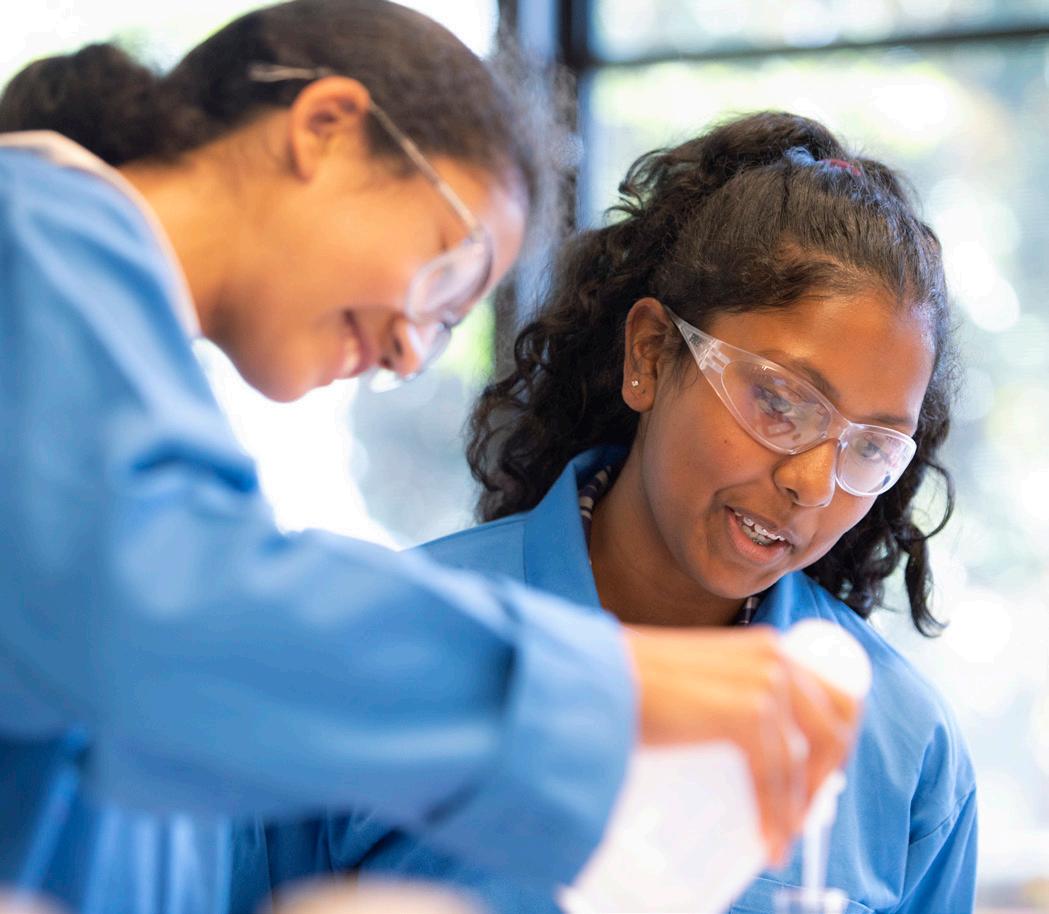
Topics include Pushing and Pulling, How Life Begins and Earth in Space.
In Year 8 the focus is on the Methods of Science. Students have the opportunity to design their own experiments and undertake one major experimental research project.
Topics in Year 8 Science include Chemistry at Home, Blood and Guts and Sound Light Action!
In Year 9 the common thread for the year is the concept of energy. Students will develop a scientific understanding of the energy concept and discover how energy transfers underpin all aspects of life on Earth and human activities.
In Year 10 the course encourages students to refine skills and complete the body of knowledge needed for senior years. Students also develop analytical and data processing skills.
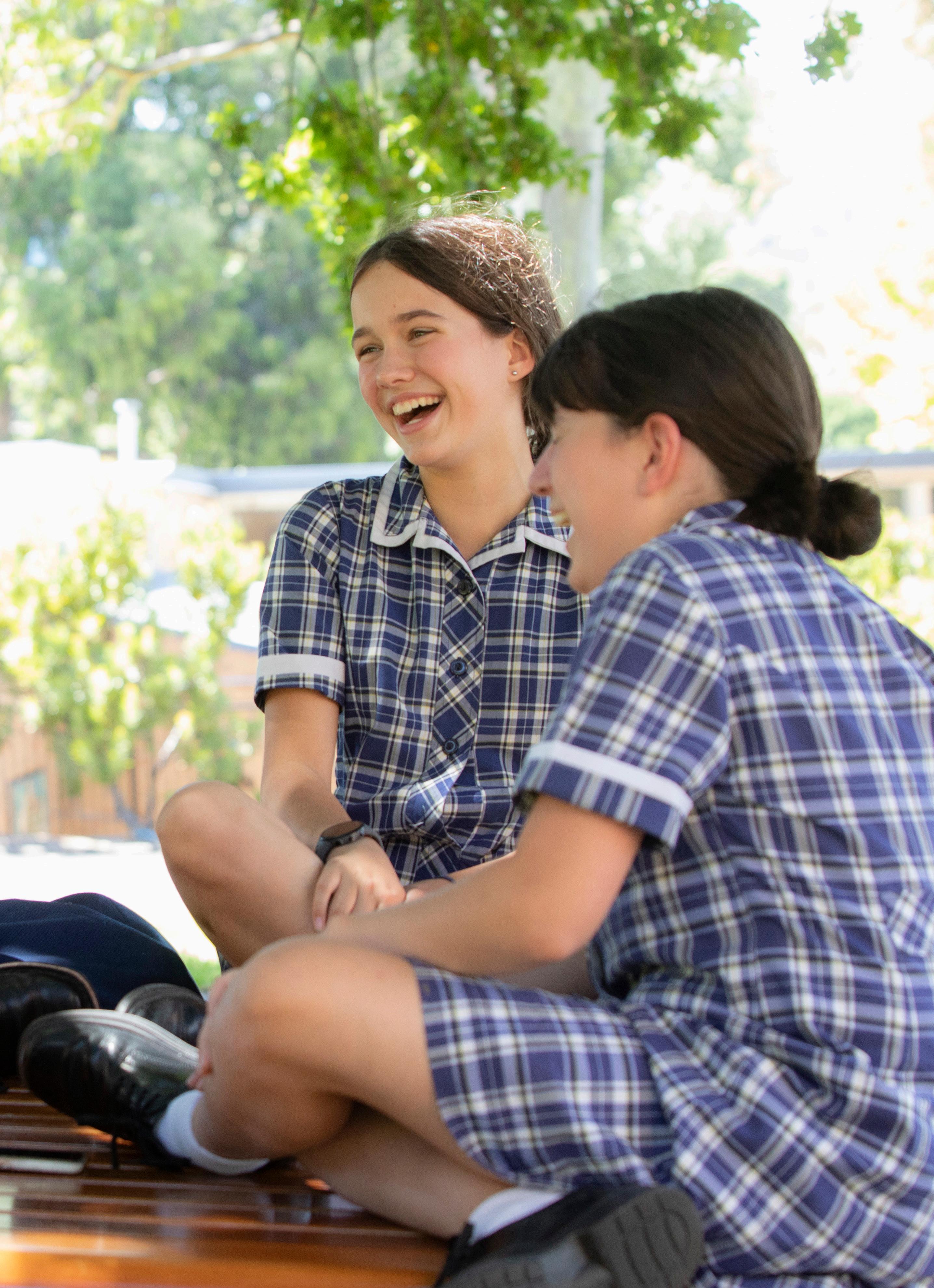
The following information is to be used as a guide only. Final subject offerings may vary and detailed information regarding this will be provided in the year prior to commencement.
Electives in Year 9 run for one semester.
This elective explores aspects of drawing and painting. Students are introduced to a wider range of art materials and new skills. They are encouraged to work in a more independent and investigative manner in a studio environment. Emphasis is also placed on further developing skills in research and art writing. Students compare the technical and stylistic features of different artworks and use this understanding to extend their technical and aesthetic skills. A studio workbook with visual and annotated records of processes used in the development of their own art works is maintained. During the semester, when relevant, students have the opportunity to work with an artist for a day or visit an exhibition.
This elective can provide a pathway to further Art studies in Year 10 and VCE Art or IB Visual Arts.
Consolidating and building upon skills and knowledge acquired in earlier years, Year 9 Ceramics students explore ideas and subject matter to encourage the development of a personal style of creative expression, with a focus on sculpture and functional ware. This is facilitated by the study of the artistic intentions of a selected group of artists working in clay and allied materials. Students develop capabilities in research and art writing as well as in visual and critical analyses. Discussion of the students’ own ideas and creative outcomes is encouraged. Experimentation with ceramic materials, techniques and technologies reinforce the development of problem-solving capabilities applied to the attainment of personal creative objectives. A studio workbook with visual and annotated records of processes used in the development of their own art works is maintained.
This elective can provide a pathway to further Art studies in Year 10 and VCE Art or IB Visual Arts.
This elective is an introduction to the world of visual communication and design. Students use manual and digital drawing methods using Adobe Creative Cloud applications, to create visual communications in the specific design fields of Environmental, Industrial and Communication. Within Design students learn to develop briefs and visualise, generate and develop ideas in response to audience needs. They also evaluate, reflect on and justify their decisions and aesthetic choices. Students research historical and contemporary Design and cultural influences.
This elective can provide a pathway to further Art and Design studies in Year 10 and VCE Art, Studio Arts or IB Visual Arts.
This course builds on the skills and experiences of Year 8 Drama and focuses on the creation of character. Students explore the acting skills of movement, voice, gesture, facial expression and stillness and silence to develop original characters using a variety of creative stimuli. They work individually, in pairs and in small groups to develop confidence in working independently and also to explore a range of group dynamic skills, such as learning to work cooperatively and purposefully with others.
Students are challenged to observe the world around them in the development of character and performance work, using their own stories and histories to create work, as well as exploring creative and innovative responses to problemsolving activities. They examine how production roles, such as costume and props, help communicate story and character.
Students reflect on their own work and the work of others, analysing and evaluating the elements that contribute to the creation of performance work. They learn to reflect critically on their own experiences and responses and further their own aesthetic knowledge and preferences. They utilise scripts from a variety of sources to present a range of characters and also write scripts individually and collaboratively, working through the drafting and editing process to present considered and well-developed performance work on paper and in performance.
This elective can provide a pathway to Drama in Year 10 and VCE Theatre Studies.
This course is open to all students. No prerequisites are required. Students undertake study in the following areas: Music technology – the music industry has developed some highly effective computer software programs. Students learn to use these programs as a tool for arranging and composition.
Multimedia publishing – students compose/arrange original and pre-recorded music and sequence it to preselected and original video clips.
Sequencing – students gain skills in sequencing and arranging using the latest software. This elective can provide pathways to Year 10 Multimedia, Design and Art, to VCE Studio Arts (Multimedia) and Information Technology subjects in Years 10 and 11.
This semester elective focuses on performing skills through the preparation and presentation of solo works. Music performance skills are broadened by the development of technical work, aural comprehension and score reading and analysis.
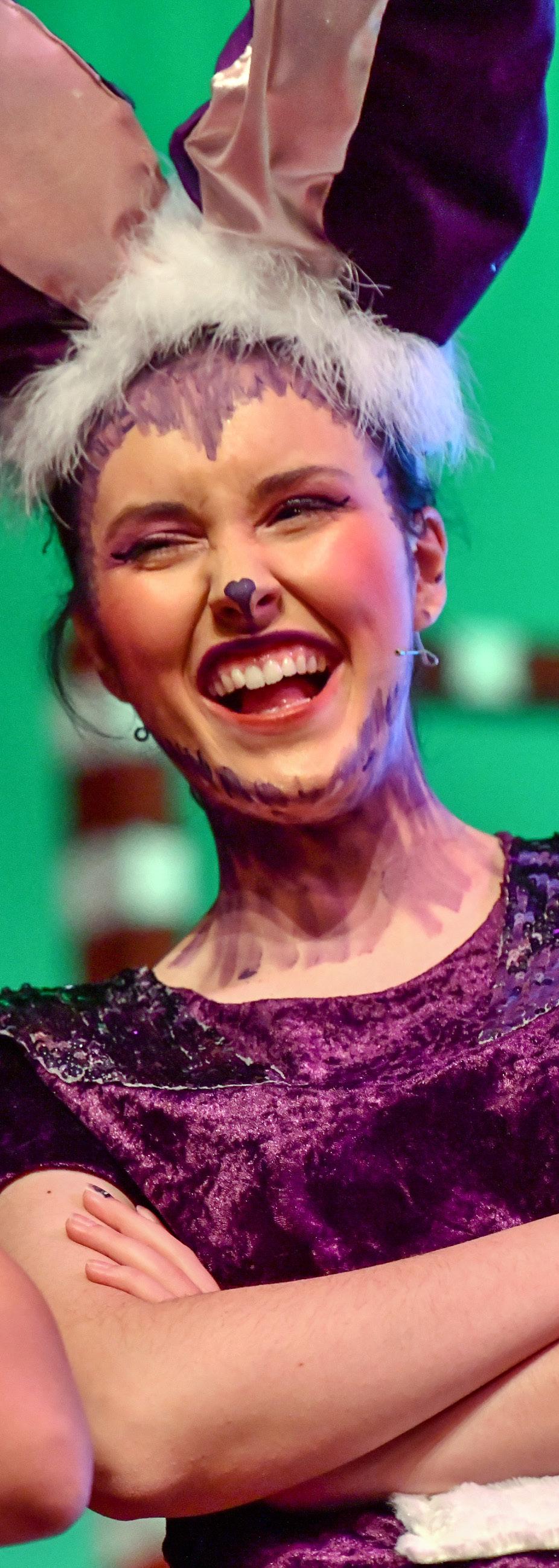
In this course the emphasis is on design, the refining of skills and the imaginative interpretations of each project. Fashion design and current trends are integrated into these projects where relevant. Emphasis is placed on developing skills in research and art writing, as well as visual and critical analyses, evaluation and discussion of art works and cultural connections and the student’s own work. Students maintain a studio workbook, with annotations of their chosen processes, which records the development of their own artworks.
This elective can provide a pathway to further Art studies in Year 10 and VCE Art or IB Visual Arts.
This course provides opportunities for students to use professional applications as they develop skills in commercial software used in the information technology industry and in the general workplace. These include programming (involving Python and Swift), iOs App development and professional movie making, as well as Web 2.0 technologies. Higher level technical problemsolving and project management skills are also developed that would support use of information technologies in all areas of application.
This course provides an avenue for students who wish to continue their studies in computing in Year 10.
The setting up of a Real Estate business is used as the focus for the course, which caters for students who wish to develop skills in their use of computers and their business applications. Students experience a variety of software packages that will assist in studies through Years 10 to 12 and beyond. These include word processing (Word), desktop publishing (InDesign and Illustrator), spreadsheets (Excel), database (Access), web development with HTML and CSS and Web 2.0 technologies and information research (Internet). Projects are designed with minimum skill requirements, but with open-ended scope for individual control and creative diversity.
This course provides an avenue for students who wish to continue their studies in computing in Year 10.
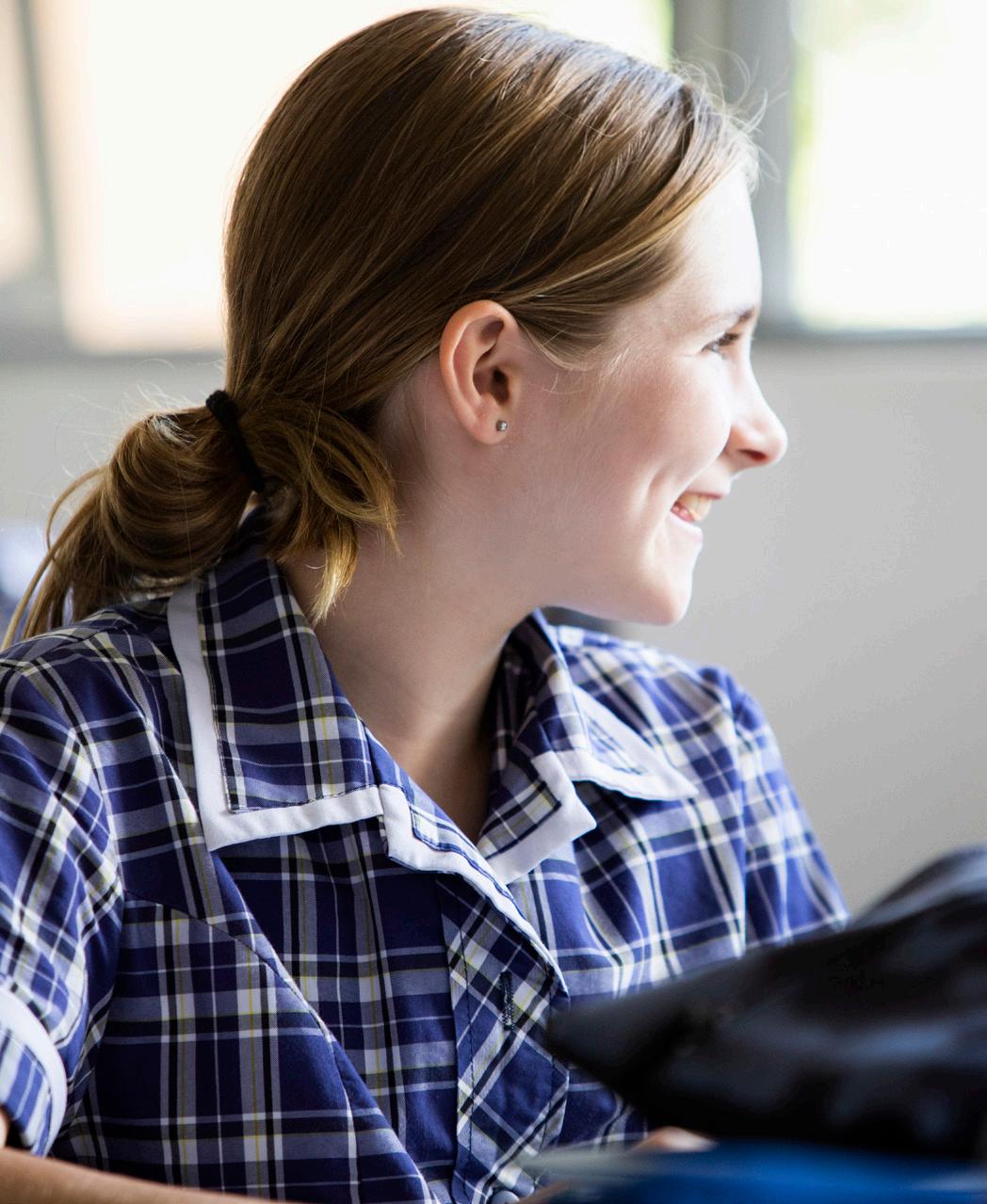
This course studies the belief systems of the ancient Mediterranean and Classical societies and the ongoing influence which these have had on Western culture. The development of religion from early fertility goddesses to pantheons and monotheism, and from creation myths to modern moral codes, is explored.
The nature of Ancient Greek society, in particular, is investigated through the study of myths and legends. Students are introduced to the many characters and themes of the stories, considering the roles they played in constructing and reflecting the societies to which they belonged. Through the exploration of Classical art, drama, archaeology and the debates around the truth of the Trojan War, students will also learn of the lasting impact the Greeks have had on modern society.
Throughout the course, students will create posters and PowerPoints, and give oral presentations on a wide variety of topics.
Economics and Business empowers students to shape their social and economic futures and to contribute to the development of prosperous, sustainable and equitable Australian and global economies.
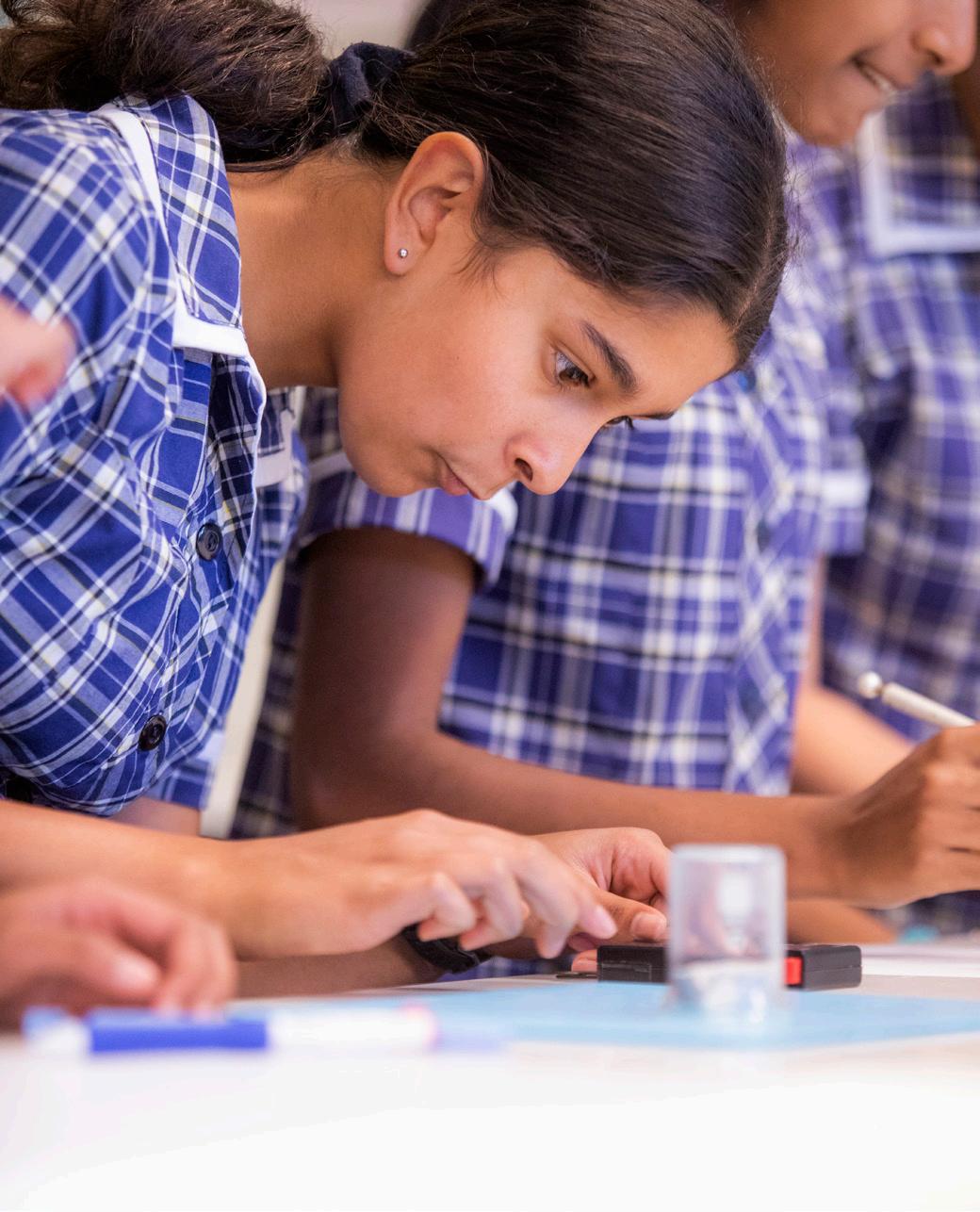
The Year 9 Commerce program utilises a case study approach to provide students with the opportunity to develop their financial literacy skills. Students explore the way markets work (both locally and globally), their rights and responsibilities as consumers and future workers/ entrepreneurs, the role of businesses and their response to market opportunities and the management of risk and reward and participation in the workplace.
The course aims to help students make informed decisions and to participate effectively in the local and global economies; promote enterprising behaviours and capabilities that can be translated into life, work and business and promote an understanding of work and business environments.
Areas to be covered will include:
• confidently apply their knowledge and skills to solve unfamiliar problems.
• sound financial management from personal and organisational perspectives
• impacts of financial decision-making by individuals, businesses and governments
• rights and responsibilities of consumers
• the role of markets in influencing the decisions of consumers and businesses
• alternative investment opportunities
• good and bad debt and the risks of over indebtedness
• current and future developments in the world of work
This unit provides an opportunity to consolidate English skills. Participation in this elective is by recommendation of the Learning Enhancement Department and/or the Years 7–10 Learning Coordinator. This elective provides students with the opportunity to focus on:
• developing listening, speaking, reading and writing language skills;
• developing the ability to understand and use the grammatical structures and features of English;
• developing skills to understand and communicate appropriately in both spoken and written English, in a variety of ways, for a range of purposes and audiences, using a range of media;
• learning English in context and across the curriculum so that they acquire the English language skills relevant to the different disciplines and curriculum areas.
This elective provides opportunities for students to develop greater understanding of what constitutes a healthy lifestyle, with an emphasis on food and nutrition. Students will learn how to make healthy food choices, using food selection tools and dietary guidelines to critique and prepare a range of meals. They will develop preparation skills and techniques based on an understanding of nutrient content, sensory and aesthetic properties of food, learn to adapt recipes and practise food safety and hygiene.
This elective covers the same syllabus as the core course, the only difference is that there are five lessons per cycle instead of six. Girls in the past have had no trouble covering the syllabus and are equally well prepared for senior study as those who have studied the Core.
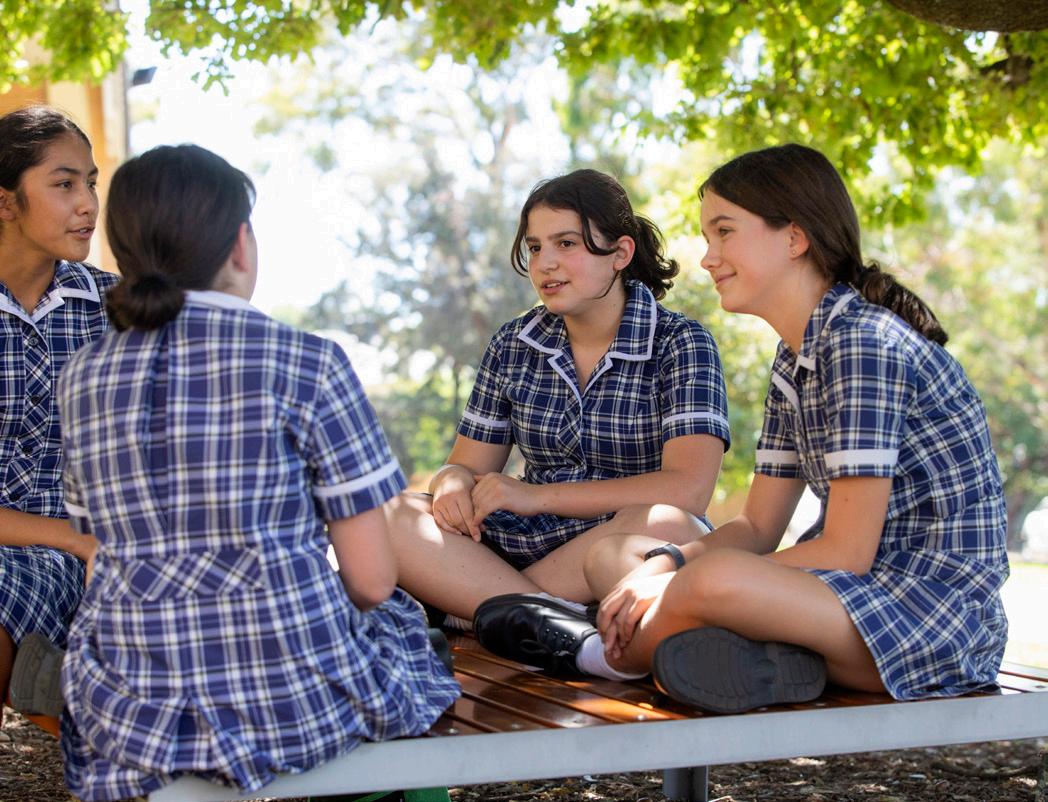
This course consists of a selection from the following five topics taken over a semester.
Mysteries of the sea - students investigate the diversity and interactions in the marine environment through a variety of activities which may include fish dissection, group and individual research tasks and a visit to the Melbourne Aquarium.
Animal behaviour - students learn about the variety and survival value of animal behaviours. Different types of behaviour are investigated including trial and error learning, classical conditioning and problem-solving. Endangered species - students develop an understanding of the delicate balance within our natural world by researching an endangered species. The unique aspects of the Australian environment are also explored.
Plants and people - students develop an understanding of the complexity of the plant world and our dependence on it. Different plant propagating techniques are investigated.
Life in the Past - students investigate fossil evidence to help to build a picture of life in ancient Australia, including dinosaurs and megafauna. They observe and identify fossil specimens, construct a timeline of the history of life on Earth and make their own fossil casts.


The following Information is to be used as a guide only. Final subject offerings may vary and detailed information regarding this will be provided in the year prior to commencement.
Electives in Year 10 run for the whole year.
This elective focuses on making and exploring images in drawing, painting, printmaking and sculpture. Students are encouraged to work in a more independent manner in a studio environment, developing and experimenting with a variety of techniques and processes to refine and reflect a personal aesthetic. Students apply decisionmaking skills to discover the most effective way to communicate ideas by combining art elements, principles and knowledge of materials. Through the comparative analysis of artworks from a range of cultures, times and locations, students are able to discuss and describe how artists or artworks communicate and challenge ideas and meaning. The knowledge and understanding of the work of different artists also extends students’ awareness of style, techniques and how to approach new challenges in their artworks. Students maintain a studio workbook that documents and justifies their selection, refinement and presentation in art creating and making processes. During the elective, when relevant, students have the opportunity to work with an artist and visit exhibitions.
This elective provides a strong pathway to further Art studies at VCE in Art and Studio Arts or IB Visual Arts. In turn these studies at Year 11 and 12 lead to interesting tertiary courses in Art, Architecture, Fashion and Textile Design, Graphic Design, Landscape Architecture, Interior Design, Industrial Design, Multimedia and Photography.
The society and culture of Classical Greece are both strange and familiar to us. By studying its history, art, literature and philosophy, students engage with eternal questions of what it means to be human, such as: ‘What makes a leader?’, ‘What is beauty?’, ‘What does it mean to be a moral citizen?’ and ‘What is freedom?’.
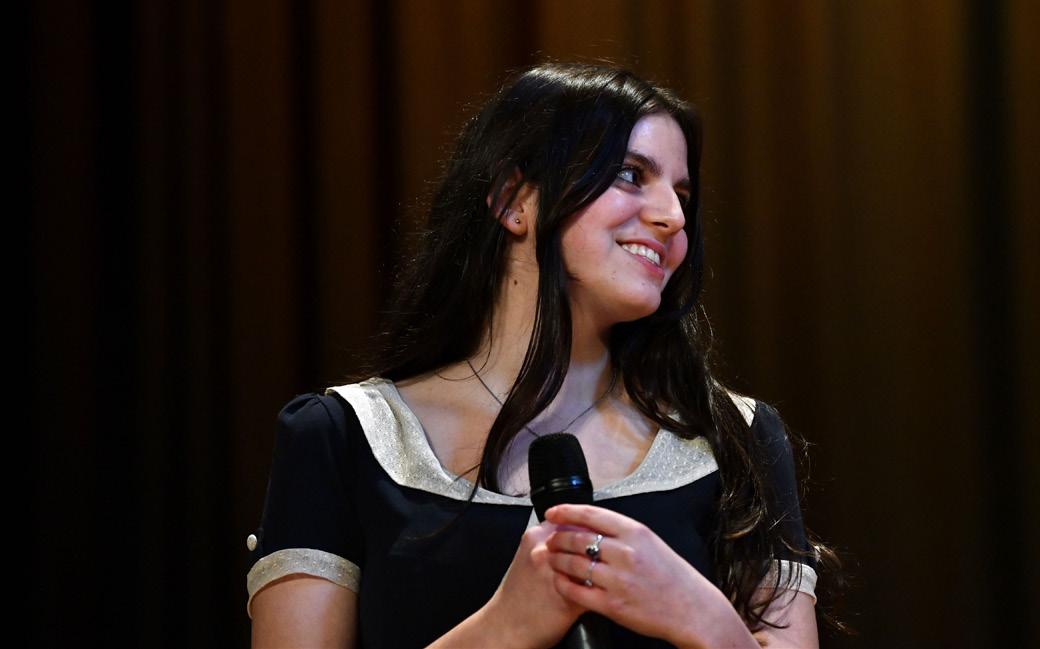
The major focus of this course is on Ancient Greece in the 5th century, known as the Golden Age of Athens. This era was one of extraordinary growth in human thinking and social development. Students will study a range of topics from this era, such as the origins of democracy, Greek sculpture and architecture, a Greek tragedy and the philosophy of great thinkers such as Socrates. They will present their findings through discussion, written work and presentations.
Given the breadth of this subject, students will find it a useful foundation for studies in other subjects, such as Art, Drama, English and Literature, Global Politics, History and the IB subject, Theory of Knowledge.
This elective expands upon the previous creative and technical experience of Year 9 students. Skills in art writing, as well as visual and critical analysis, are honed further through broader individual research and into art genres - contemporary and traditional. Students are encouraged to express – through writing and discussion - the context and meanings of their own work. Extended experimentation with ceramic materials, techniques and technologies further reinforce the development of problem-solving capabilities applied to the attainment of personal creative objectives. There is a focus on sculpture and increasing scale in their artwork. Students maintain a studio workbook, with annotations of their chosen processes, which records the development of their own artworks.
This elective can provide a pathway to further Art and Design studies in VCE Art, Studio Arts or IB Visual Arts.
Commerce plays an important part in developing students‘ awareness of the world. Every day across the world, consumers, businesses and governments exchange goods and services. This course is designed to help students appreciate the changing nature of the ways in which these transactions occur, and to assist students in making decisions, managing resources and participating in society in a more meaningful way. The course enables students to gain an insight into each of the VCE Business Studies subjects offered at PLC. The VCE subjects of Economics, Business Management, Accounting, Legal Studies and Global Politics, whilst not prerequisites for any tertiary courses, provide students with a valuable head-start should they choose to pursue further studies in this area.
At the end of this course, through a series of integrated case studies, students should be able to:
• demonstrate an understanding of the Australian economy including the role of markets in allocating resources and how psychology affects economic decision-making;
• examine how laws are made and the relevance of the legal system to young people with a focus on basic criminal and civil laws;
• demonstrate skills in basic accounting, including the preparation of financial reports for a small business;
• analyse and apply the steps involved in the development of a business plan;
• evaluate the role of government in managing the economy, developing effective laws and supporting small business; and
• discuss the role of power in the global economy and evaluate the contributions of transnational corporations to living standards.
Information and communication technologies (ICT) are rapidly changing the way we live, work and play. They affect all aspects of business, communication and entertainment. Almost every area of employment requires an understanding and use of ICT for greater productivity and creativity.
This course aims to prepare students to pursue the wide array of intellectual and career opportunities that computing has made possible. It seeks to provide them with a ‘future proof’ foundation in computing principles so that they are adequately prepared with both the knowledge and skills to live and participate meaningfully in our increasingly digital society, economy and culture.
The course starts with learning about what is involved in sending a single bit of information from one place to another and ends with students considering the implications of a computing innovation of their own design.
Throughout the year students learn how:
• the Internet works and its impact on society;
• to program and prototype applications to solve problems;
• to collect, analyse and visualise data to gain insight and knowledge;
• to evaluate the beneficial and harmful effects to people and society brought about by computing innovations.
The course also focuses on the development of technology skills relevant to a wide range of professions using a range of software applications including spreadsheets, databases, image manipulation, desktop publishing, programming and web design and game development. Students also work with technologies such as cloud computing and mobile technologies.
This elective provides a pathway for further studies in digital technology.
In Year 10 students study visual approaches to express ideas, information and messages in areas of communication, environmental and industrial design. Students practise two and three dimensional drawing using technical and freehand drawing methods. They explore their own ideas and concepts and develop a diversity of drawing skills to realise their visual thinking.
Students use a design process to create and develop visual communications and document this in their visual diary. Students develop a brief that identifies a specific audience and needs, and present visual communications that meet the brief. They acquire the ability to alter and arrange design elements, principles, materials and production methods. Throughout the study students explore manual and digital methods to develop and refine presentations, and develop their creative, critical and reflective thinking.
Students will be exposed to, explore and investigate, the work and practice of local and international designers in historical and contemporary settings. Through this research they understand the role of design in society, and, thus, the development of their design work is enhanced. Specific visual language is used to evaluate their own work and discuss the work of other designers. Guest speakers and/ or excursions are included when appropriate.
Major tasks may include:
• a folio of freehand drawing and rendering activities;
• photography and/or Digital Imaging;
• a design folio which responds to brief/s on one, or more of the following areas: communication design, industrial design, environmental design, research and analysis of work produced by others.
This elective can provide a pathway to further Art and Design studies in VCE Art, Studio Arts or IB Visual Arts.
This course challenges students to develop a more sophisticated understanding of Drama through the use of practical activities exploring a range of theatre and performance styles. There is a refinement of acting skills, and further development of design skills through the use of production roles to support performance work.
Students explore a range of acting styles, working on developing both sincere and ‘real’ characterisations using the work from a variety of styles as a basis for character creation and exaggerated archetypes. Students work in different production roles, such as sound, lighting, costume and set design, to explore elements of theatre. Performance work uses a range of contemporary and challenging theatre styles, working individually, in small groups or on large ensemble tasks. Students devise their own work as well as using excerpts from scripts.
The course focuses on working both independently and with ensemble, and the development of the essential skills of observation, concentration, imagination and cooperation. Students are challenged to devise creative and dynamic performance responses to set tasks and to reflect on their own and others’ work, verbally and in written form.
This Drama course acts as an introduction to VCE Theatre Studies. It would be beneficial for students considering taking Theatre Studies, but it is not a prerequisite.
This elective covers the same syllabus as the core course.
This elective is designed to broaden students’ exposure to, and enrich their love of, literature. Both contemporary and classic texts are studied, including short stories, plays, Shakespearean plays and poetry. Comparative studies of texts, including a comparison of film interpretations of a Shakespearean play, are undertaken. Students who are enthusiastic readers will enjoy the course and the opportunity to respond creatively and critically to texts. They have the chance to involve themselves in class discussion and learning activities in a way that fosters confidence and skills of analysis.
This course consists of four topics taken across the year. The topics covered include:
Cheating potential global killers - a study of the nature of infectious disease and its treatment is investigated. Current and developing scientific innovations relevant to medicine, such as stem cell technology and synchrotron science, are covered.
Cells behaving badly: what can go wrong? - in this unit students investigate cancer. There is a focus on skin cancer with an emphasis on educating students to be SunSmart. The impact of lifestyle choices, regular screening and early diagnosis is also covered.

Crime scene investigation: forensics and the criminal mind - students develop their problem-solving skills in the context of solving crimes. Technologies including gel electrophoresis, DNA fingerprinting and blood typing are investigated.
Skin deep - students study the structure of skin and skin disorders including acne, eczema and burns. Practical experiences include making cosmetics such as moisturiser and lip-gloss.
Multimedia Art students experiment with ideas and stories that manipulate media elements and genre conventions to construct new and alternative viewpoints in images, sounds and text. They plan, structure and design media artworks using Adobe Creative Cloud applications. Units of work are developed around interrelated areas of art; digital photography, video, animation and sound. Students develop skills in the digitising and manipulation of images, enabling them to explore their own ideas and interpret personal issues. Students also build their expertise in areas of video production, multimedia presentation and the use of computers in the art and design industries. Students research and reflect on a range of challenging artworks, and record and evaluate their experiments and progress in their studio workbooks.
Units of work include:
• computer generated drawing and painting techniques folio of freehand drawing and rendering activities;
• photographic montage and image manipulations
• animation and digital video
• a survey of artists using digital imagery.
Research into the current use of computers in the art and design industry is undertaken. This includes guest speakers and /or excursions as part of the course.
This elective provides a strong pathway to further Art studies at VCE in Art and Studio Arts or IB Visual Art. In turn these studies at Year 11 and 12 lead to interesting tertiary courses in Art, Architecture, Fashion and Textile Design, Graphic Design, Landscape Architecture, Interior Design, Industrial Design, Multimedia and Photography.
These Units focus on building performance and musicianship skills. Students present performances of selected group and solo music works using one or more instruments and take opportunities to perform in familiar and unfamiliar venues and spaces. They study work of other performers and refine selected strategies to optimise their own approach to performance. They identify technical, expressive and stylistic challenges relevant to works they are preparing for performance and endeavour to address these challenges. Students develop their listening, aural, theoretical and analytical musicianship skills and apply this knowledge when preparing and presenting performances. Students undertake study in the following areas:
• performance
• preparing for performance

• music language
• organisation of sound
This course acts as an introduction to VCE Units 3 and 4 Music Performance and IB Music studies. It is recommended that students who are considering taking these subjects study this course.
In Semester 1 students are introduced to both analogue and digital photographic techniques and skills, including analogue darkroom processes and digital post-production software and skills. In Semester 2 students advance their knowledge of various styles of photography by working on a photographic series in order to develop their own unique style.
Students investigate and analyse photographic art in historic and contemporary cultural contexts through discussion, written projects and reflection in their studio book. Students undertake location photography fieldwork and visit exhibitions, when relevant.
This elective provides a pathway to further studies at VCE in Art and Studio Art or IB Visual Arts. In turn these studies at Year 11 and 12 lead to interesting tertiary studies in Art, Architecture, Interior Architecture, Landscape Architecture, Graphic Design, Industrial Design, Multimedia Photography, Textile Design and Fashion.
The Sports Leadership elective is an excellent course for students who are interested in taking the next step with their sports participation. It is designed to refine strategies for demonstrating leadership and collaboration skills, and most units of the course provide the opportunity to obtain experience or formal qualifications which can be used to gain employment in various areas of the sports industry. Students will obtain their Provide First Aid Certificate, develop coaching skills via an online coaching course and will work towards the AUSTSWIM Teaching qualification. They will obtain practical experience coaching sport for junior students and by participating in ELC swimming lessons.
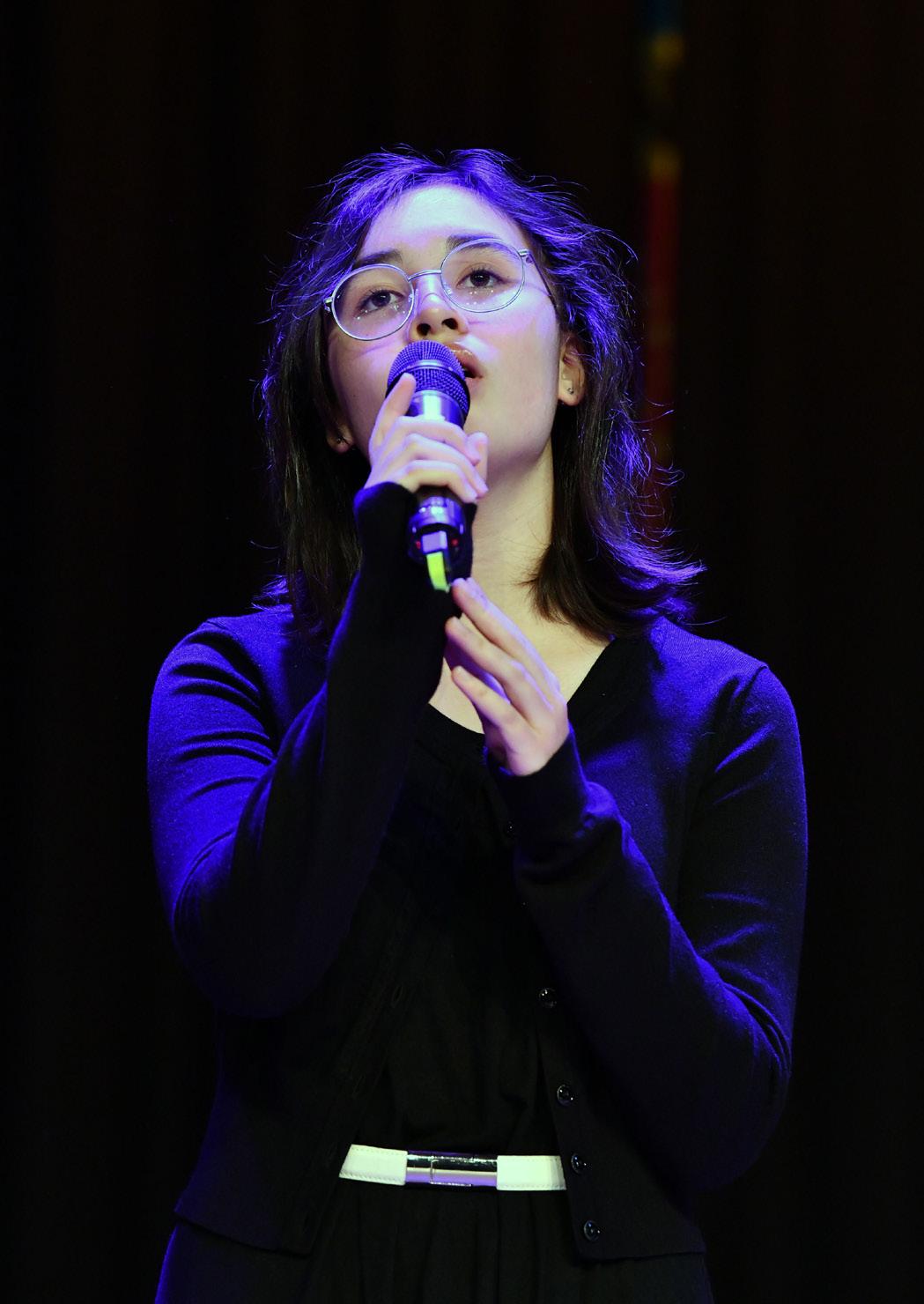
In this course the emphasis is on design, the refining of skills and the imaginative interpretations of each project. Each project has either a traditional craft, cultural and/or a contemporary focus. Fashion design, fashion history, artists and Art movements are integrated into these projects where relevant. Students investigate the relationship between fashion and culture, art and art styles as a way of looking into the history of specific times.
Emphasis is placed on developing skills in research and art writing, as well as visual and critical evaluations and analyses of artworks. Students also look at contemporary designers and artists whose work relates to the topics investigated in practical exercises and where possible, visit exhibitions. Students maintain a sketchbook with visual and annotated records of ideas, processes and research used in the development of their own art works. This elective provides a strong pathway to further Art studies at VCE in Art and Studio Arts or IB Visual Arts. In turn these studies at Year 11 and 12 lead to interesting tertiary courses in Art, Architecture, Fashion and Textile Design, Graphic Design, Landscape Architecture, Interior Design, Industrial Design, Multimedia and Photography.
This elective takes the students around the world to investigate the different cuisines of several countries. Throughout the journey there is a focus on the food preparation techniques and ingredients that are predominantly used within these countries. There is an emphasis on producing foods that are nutritionally sound and easy to prepare acknowledging the busy nature of modern life. Students also gain knowledge of the factors that influence food choices and diet-related conditions and intolerances.